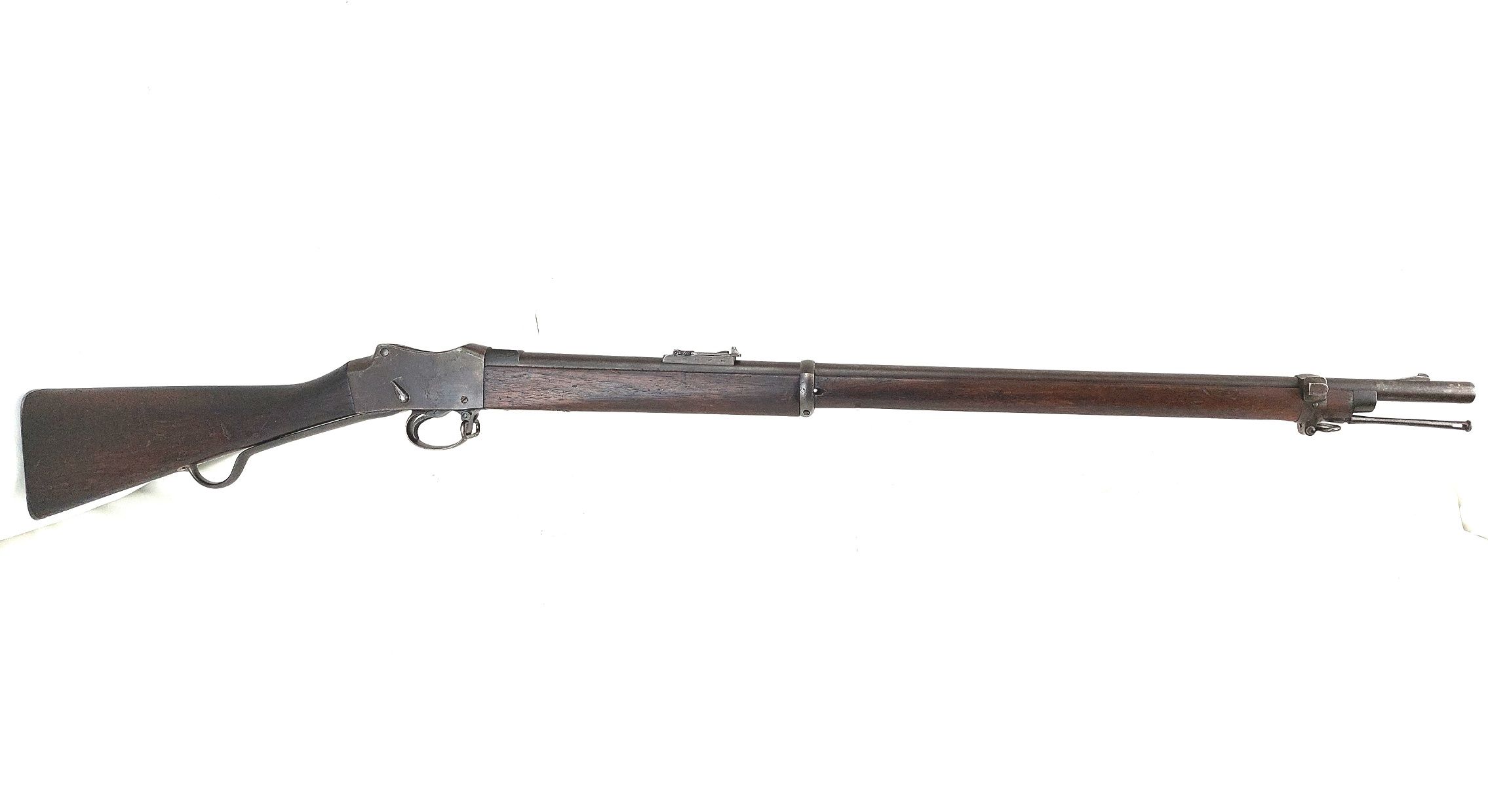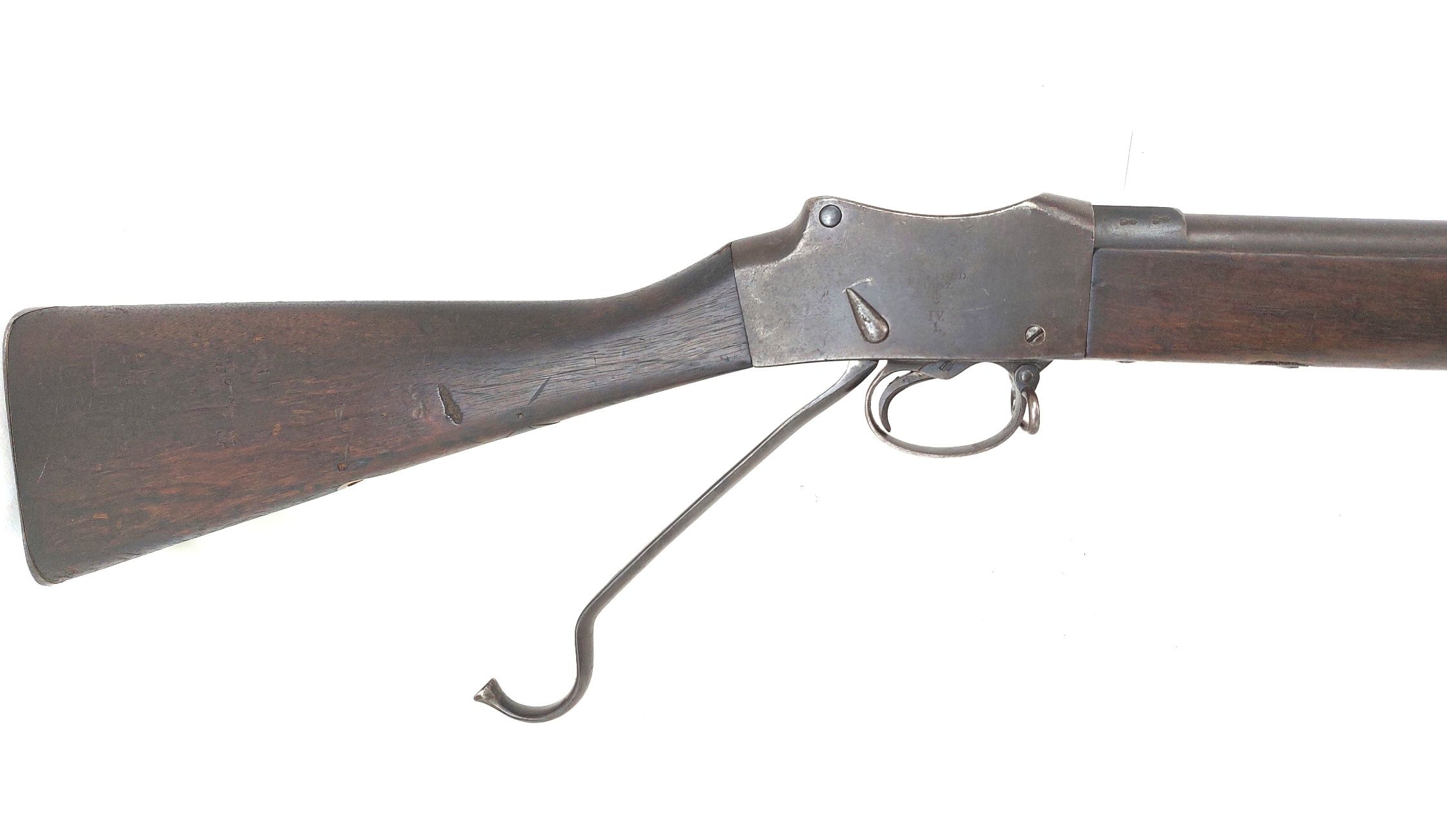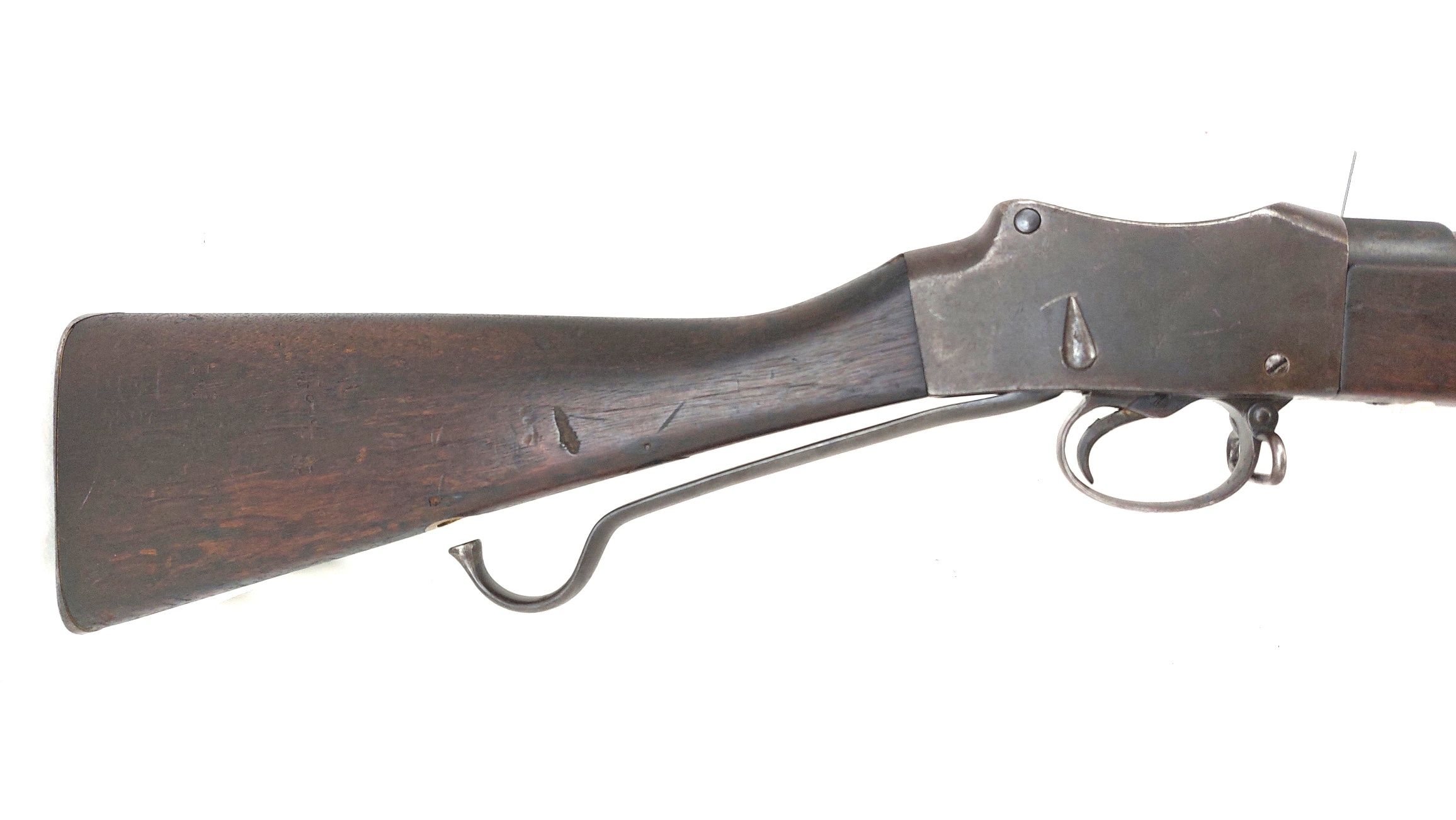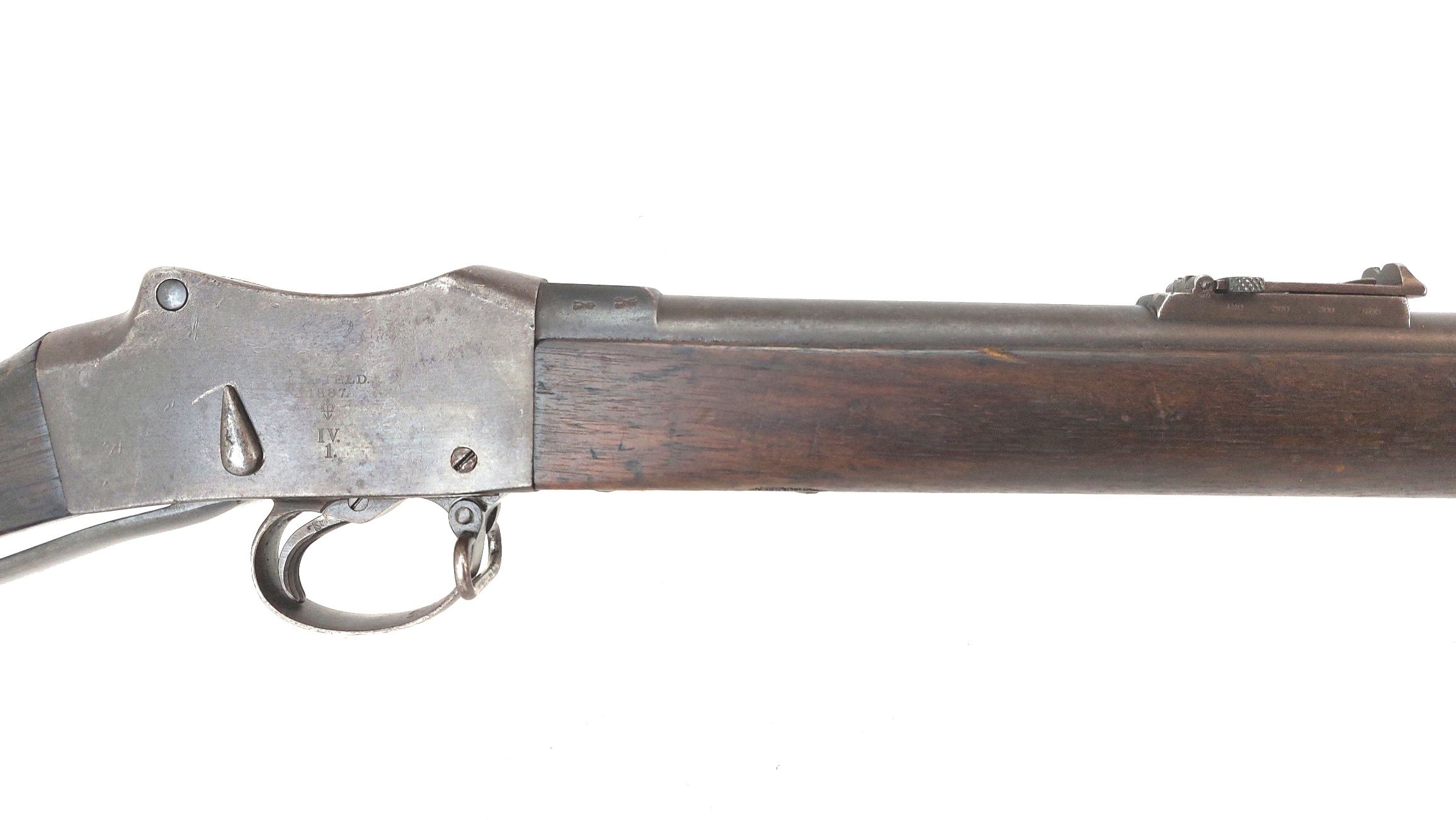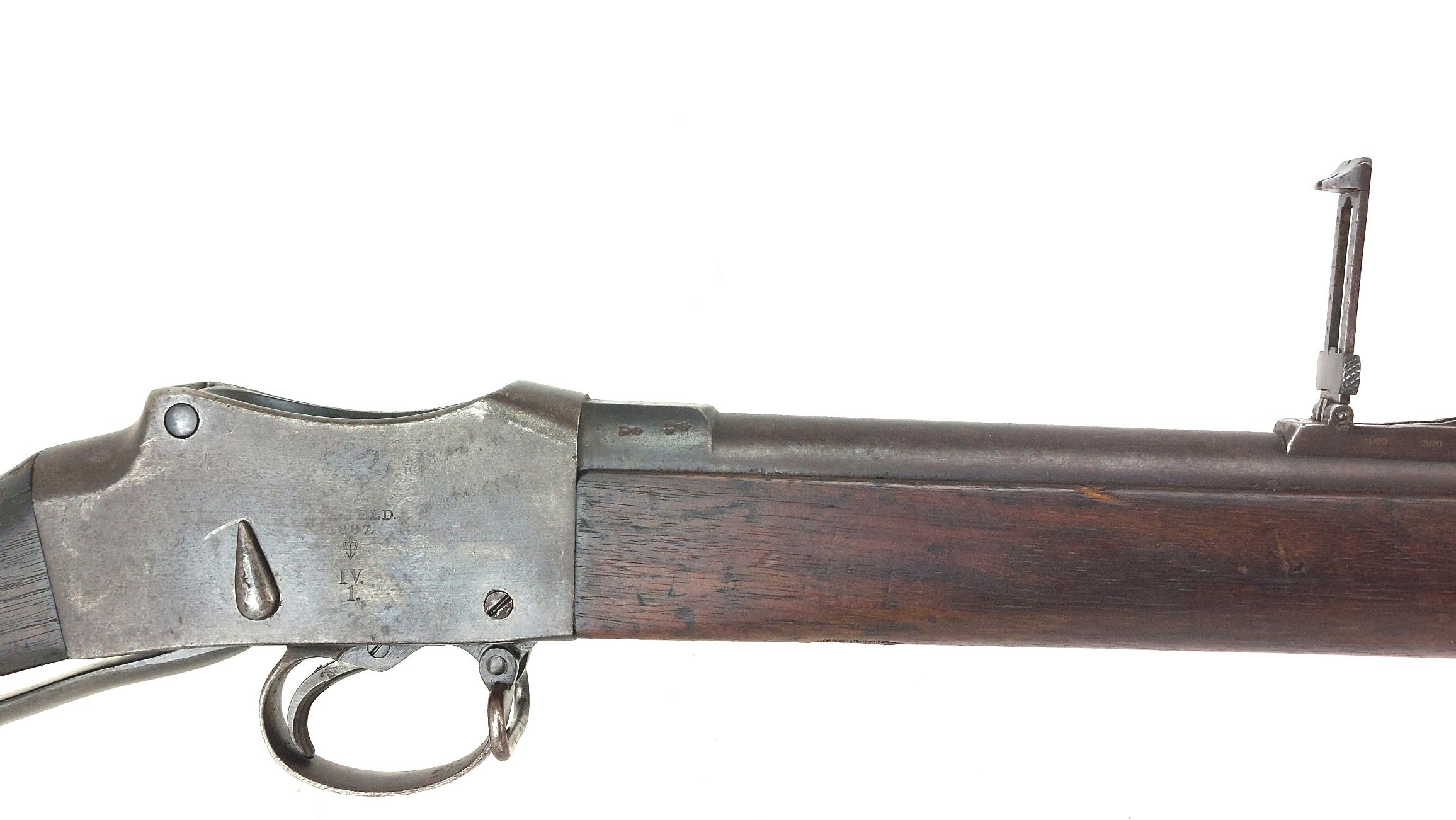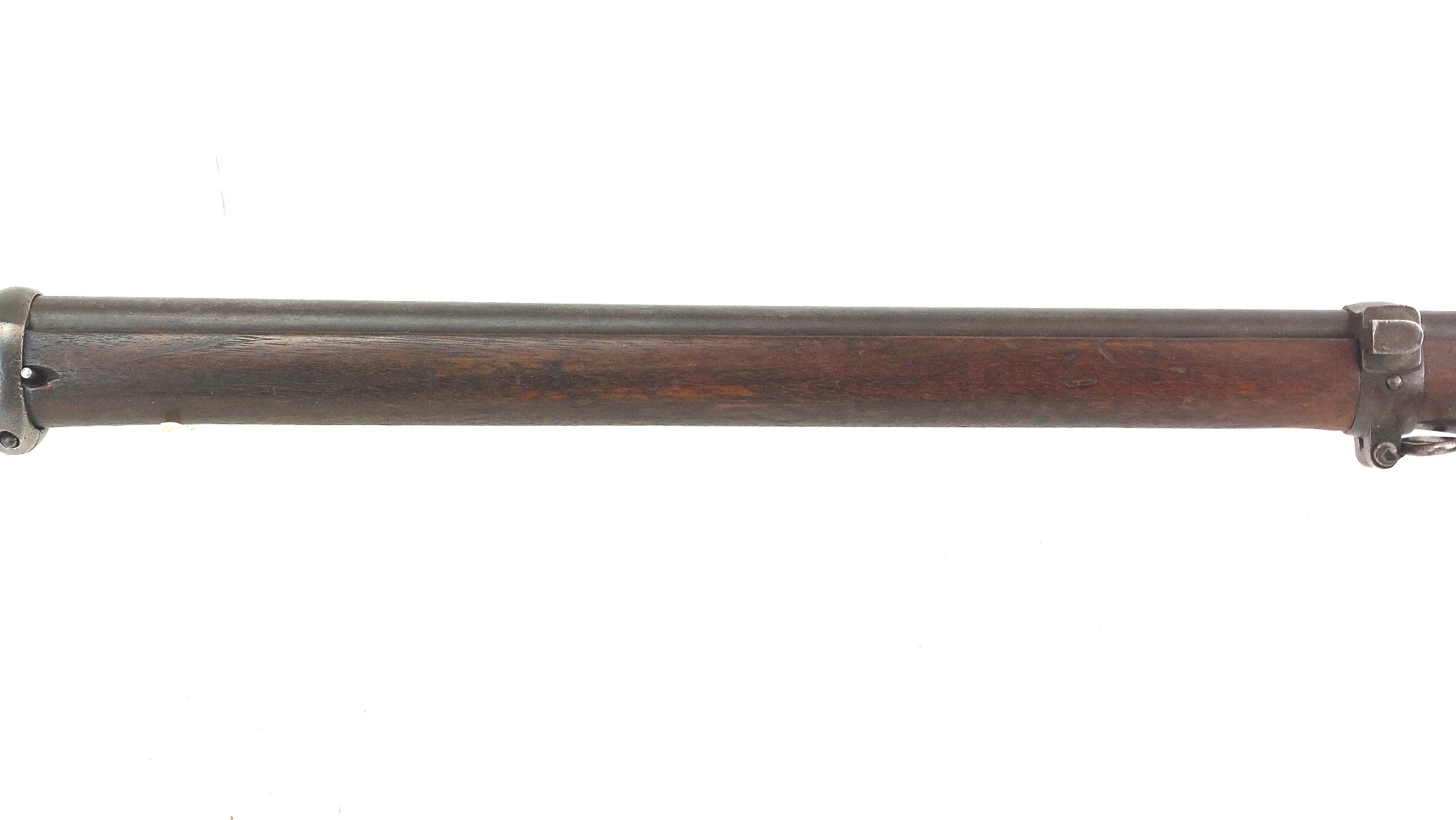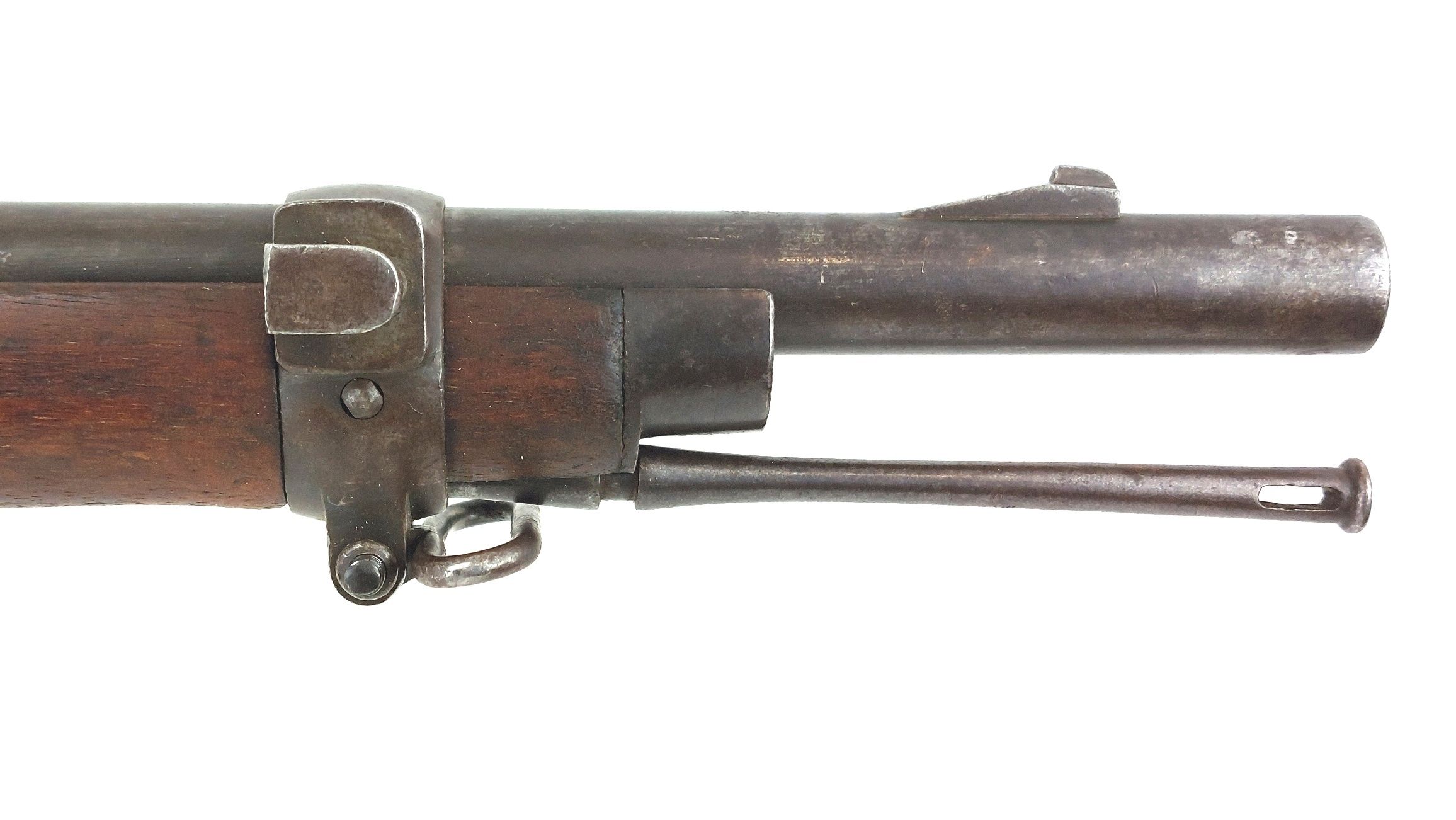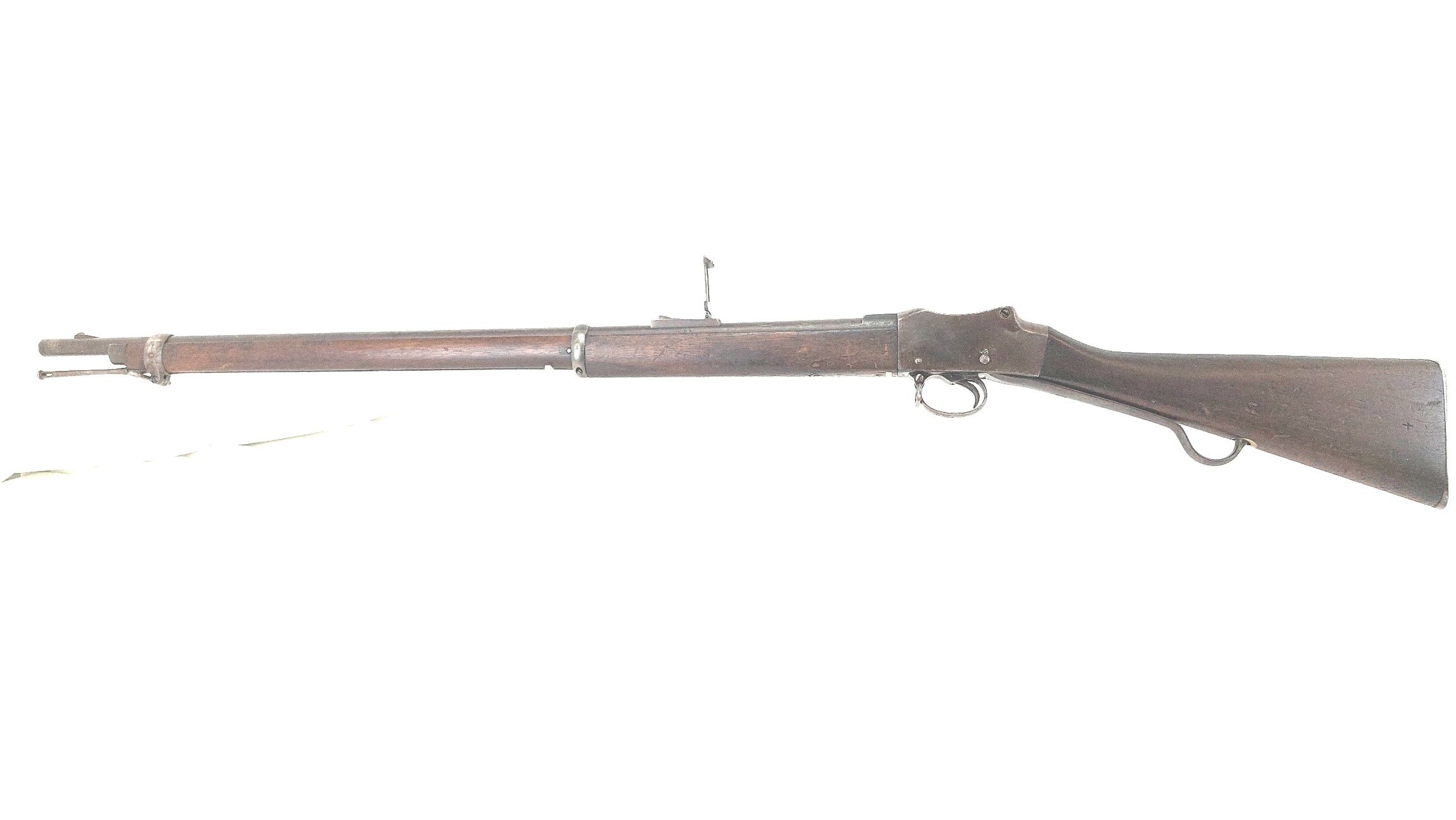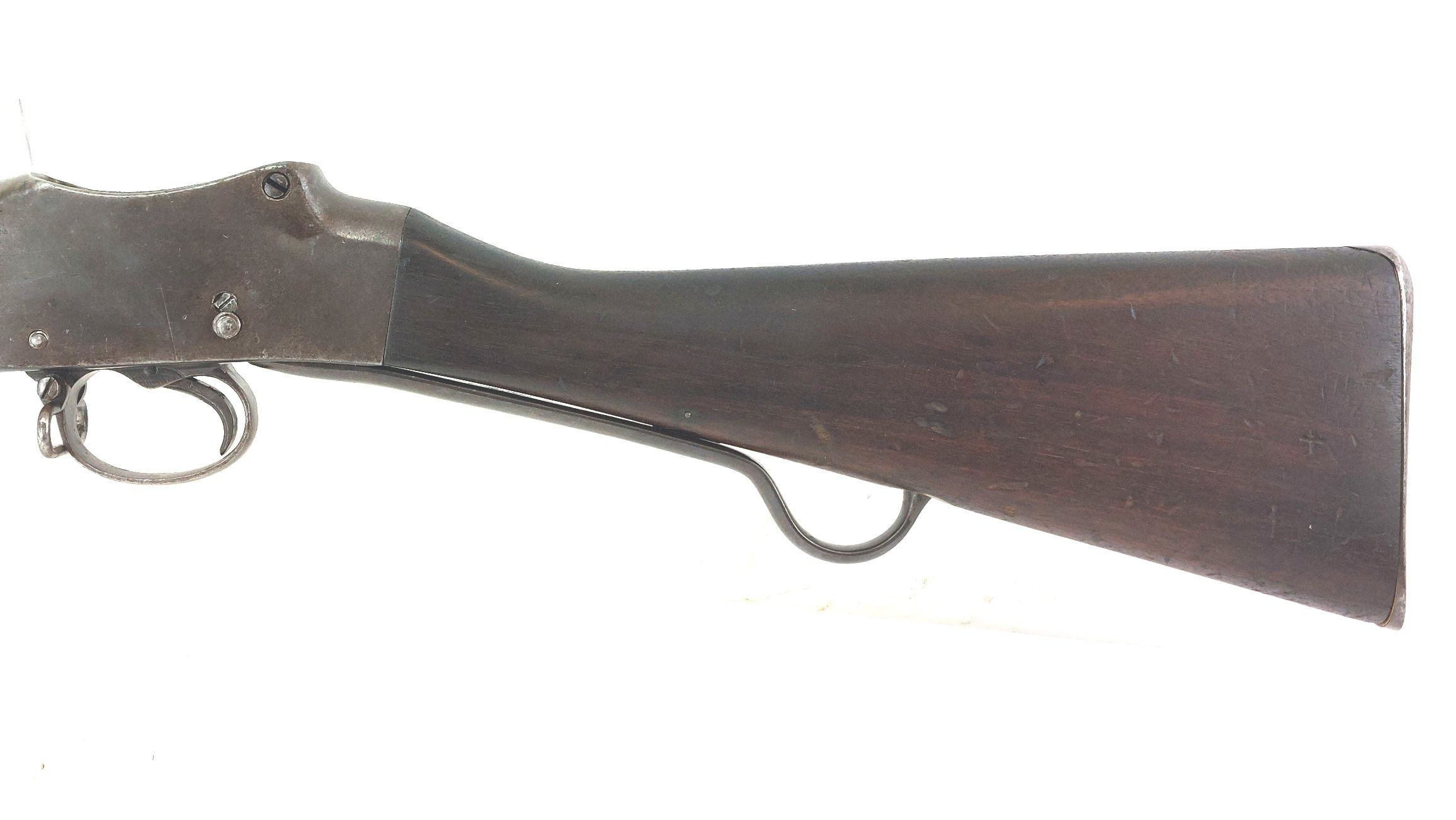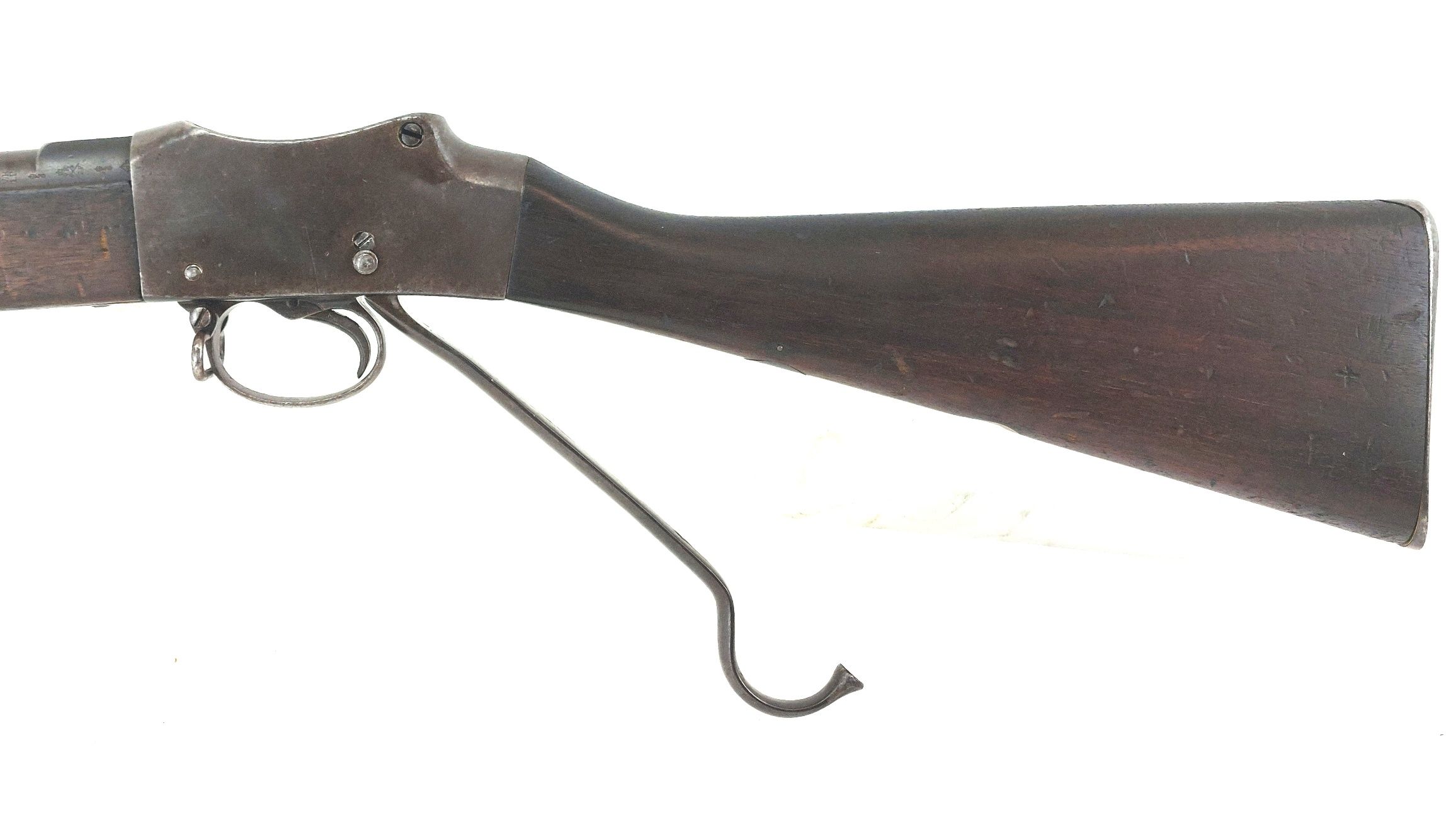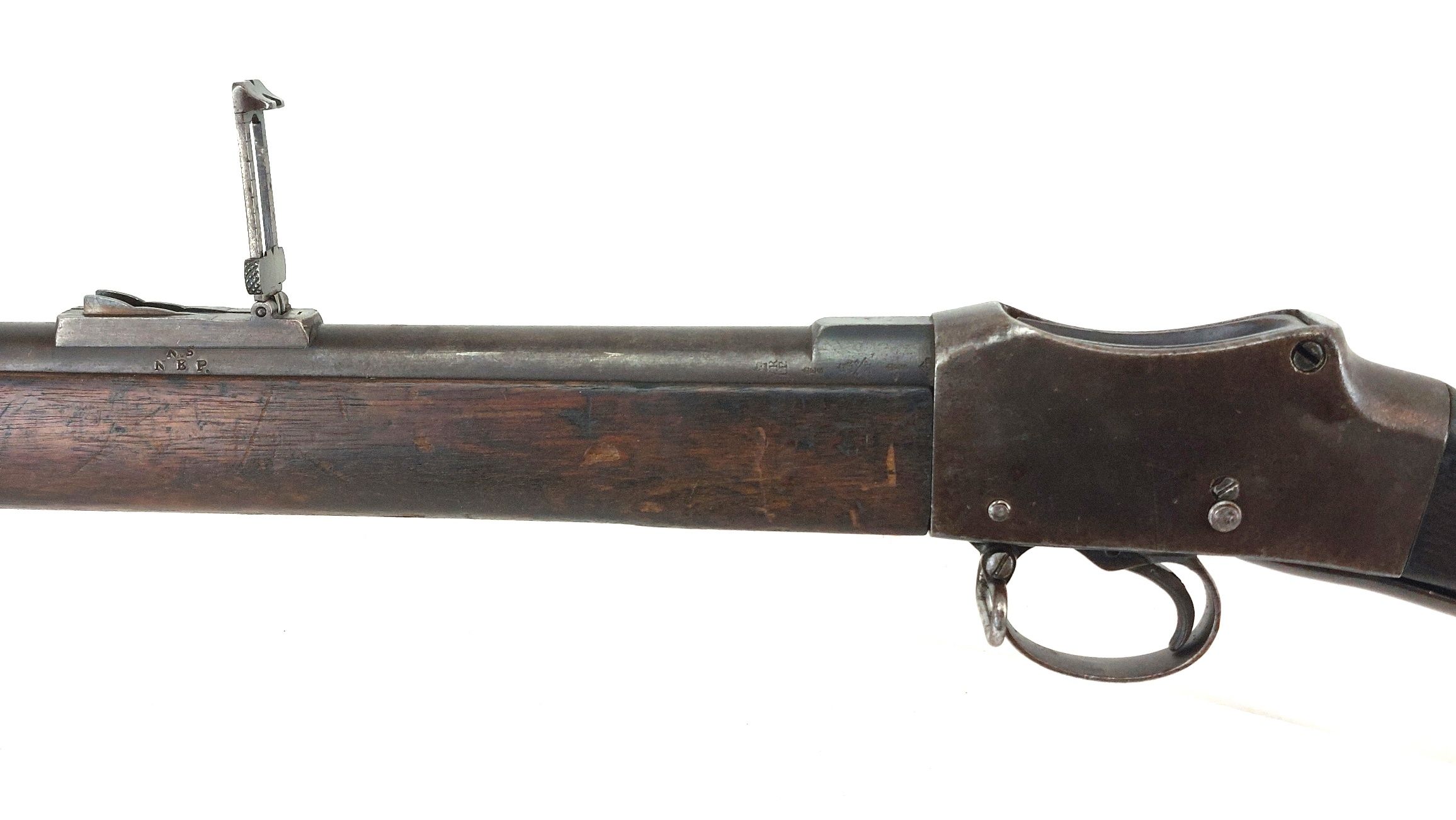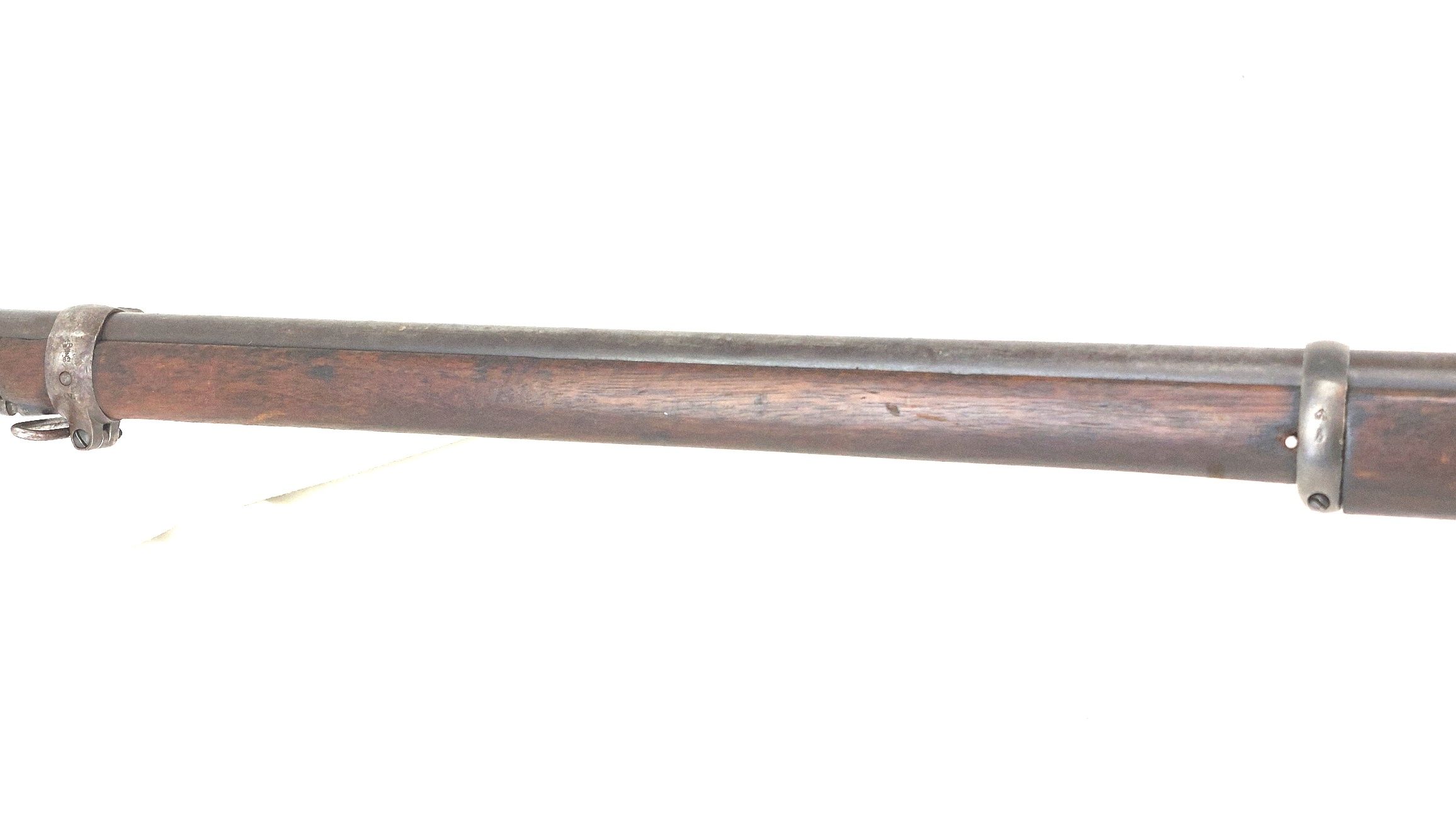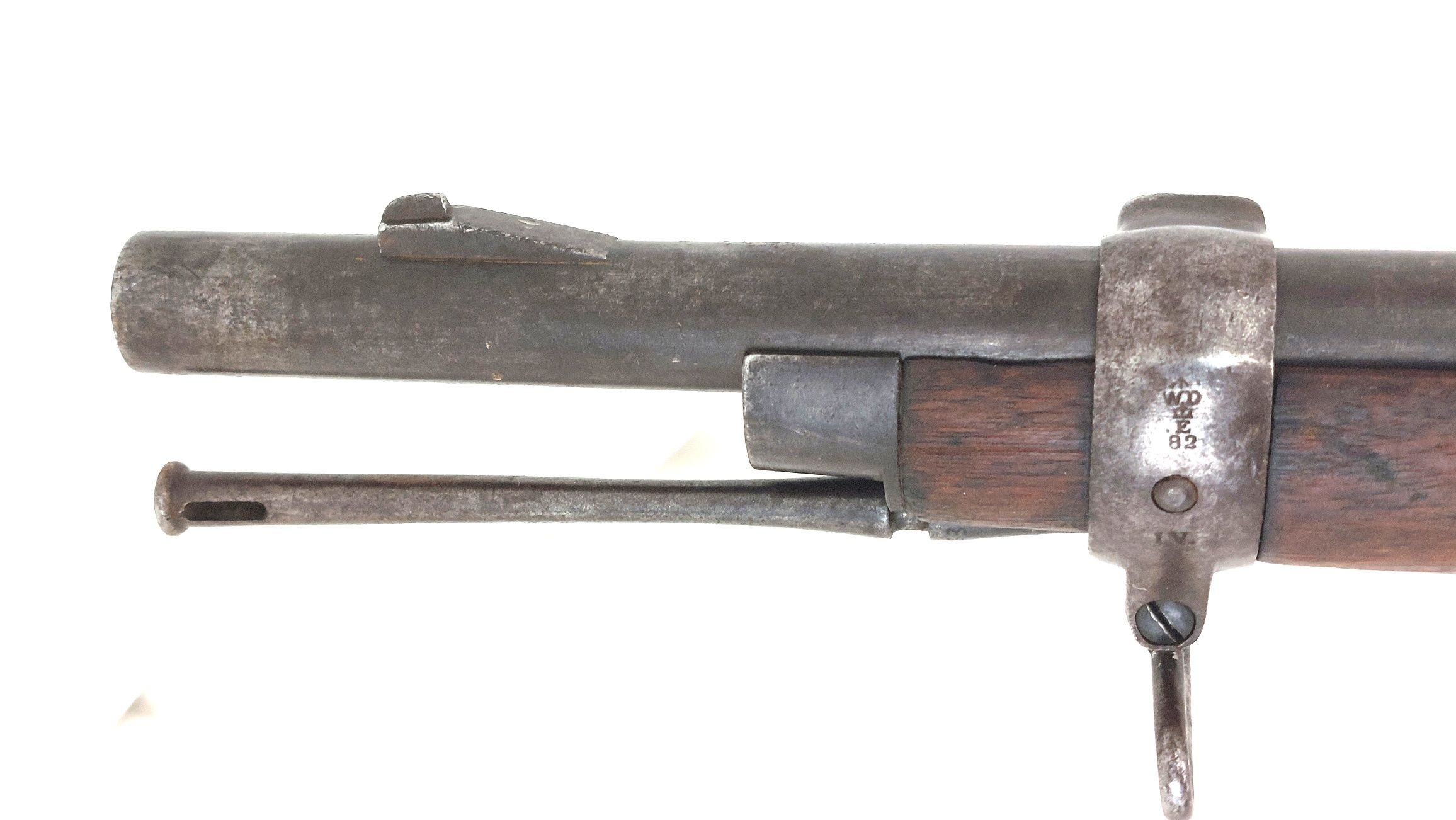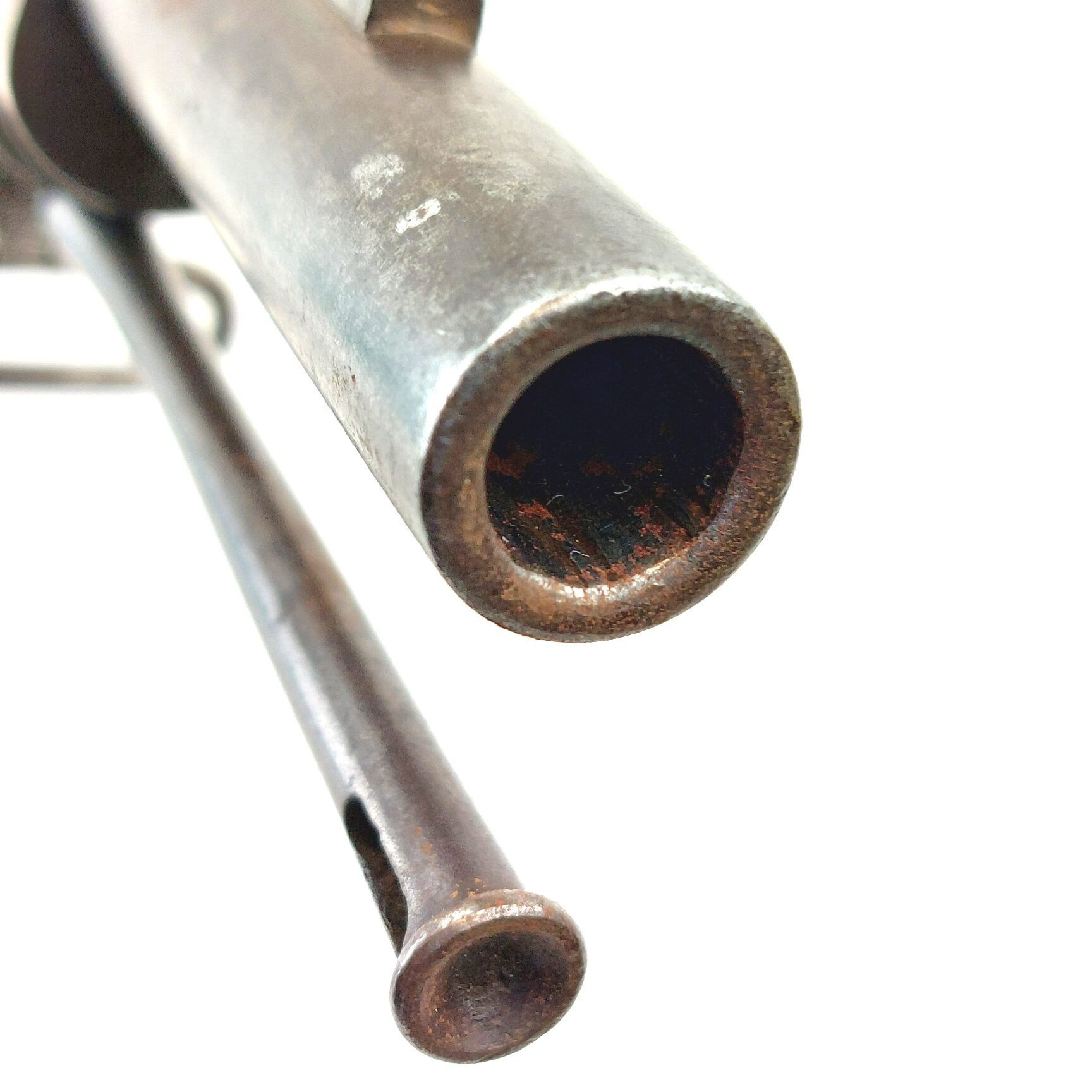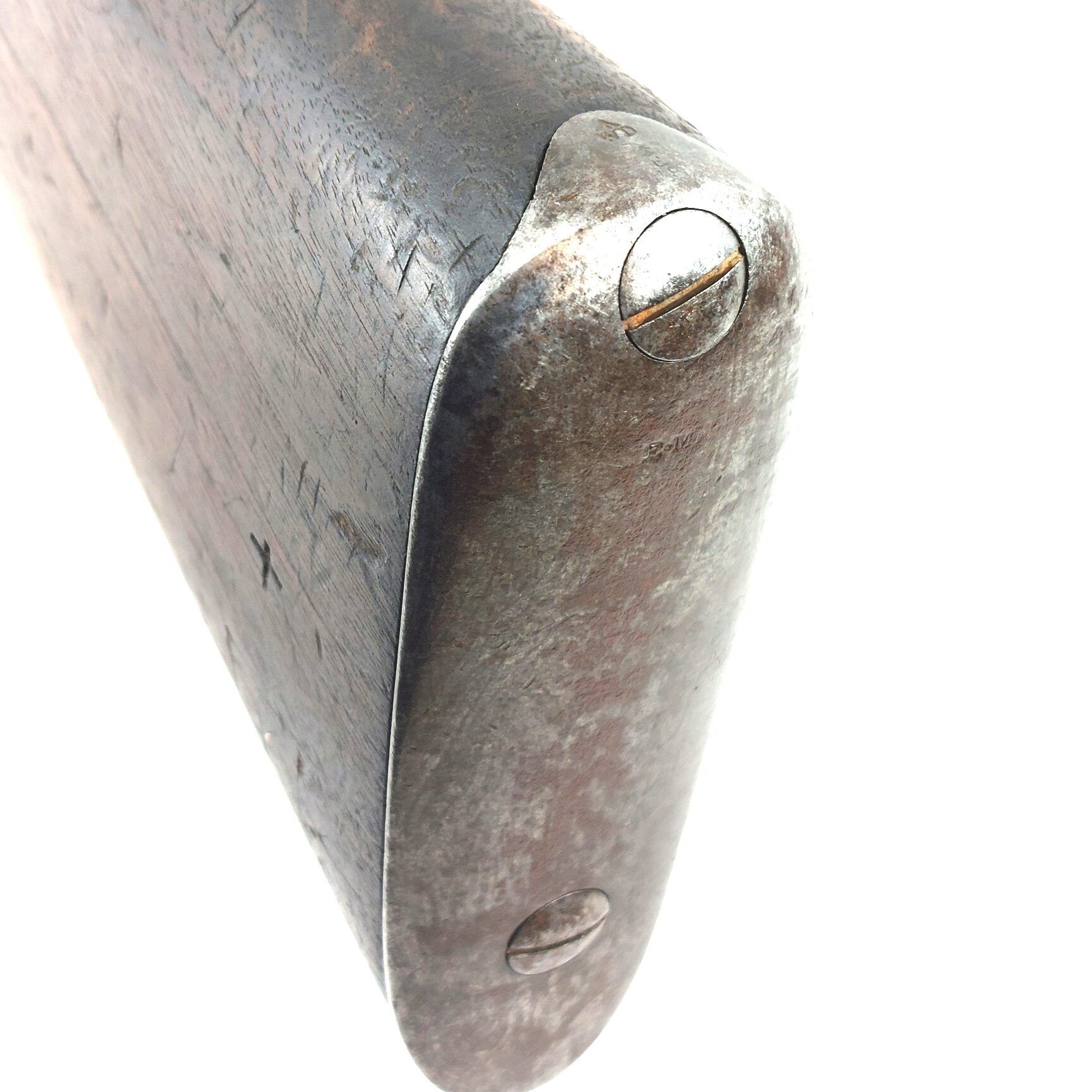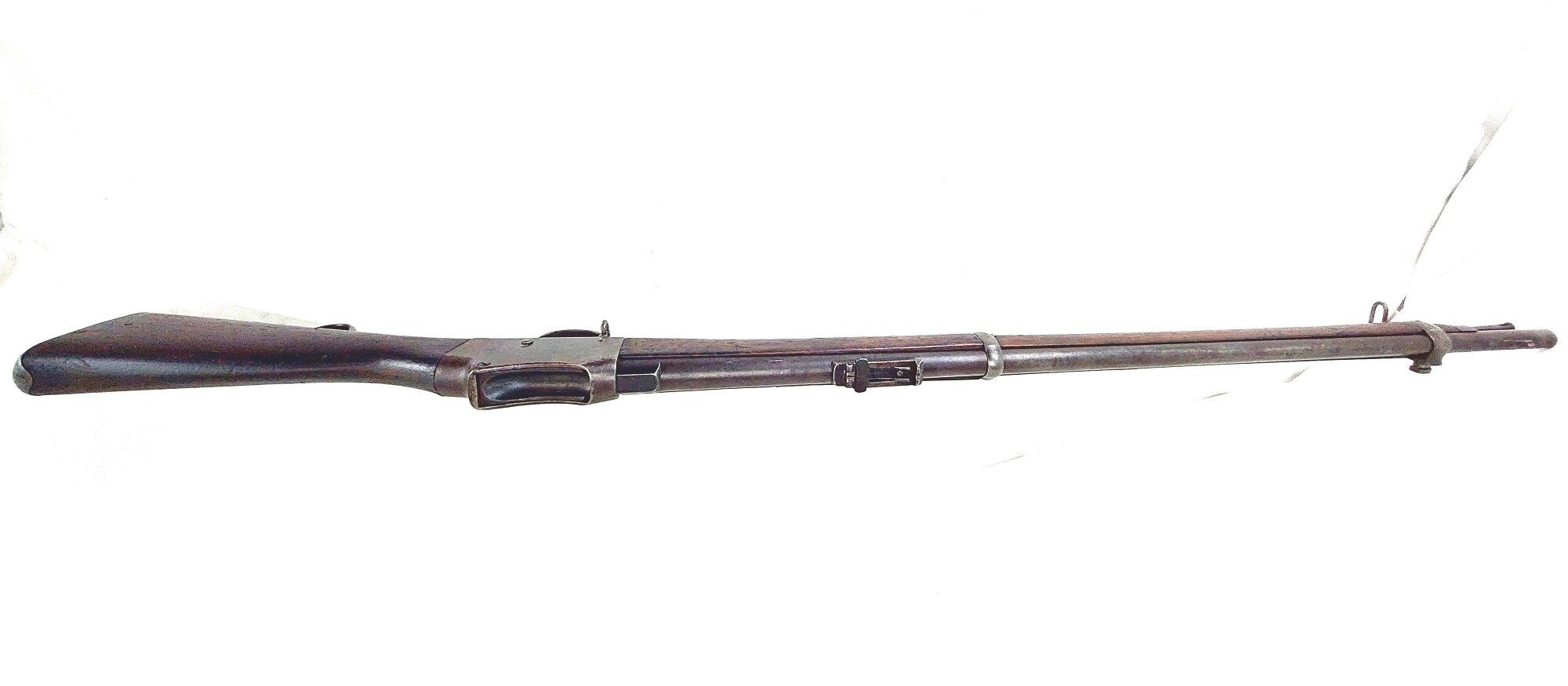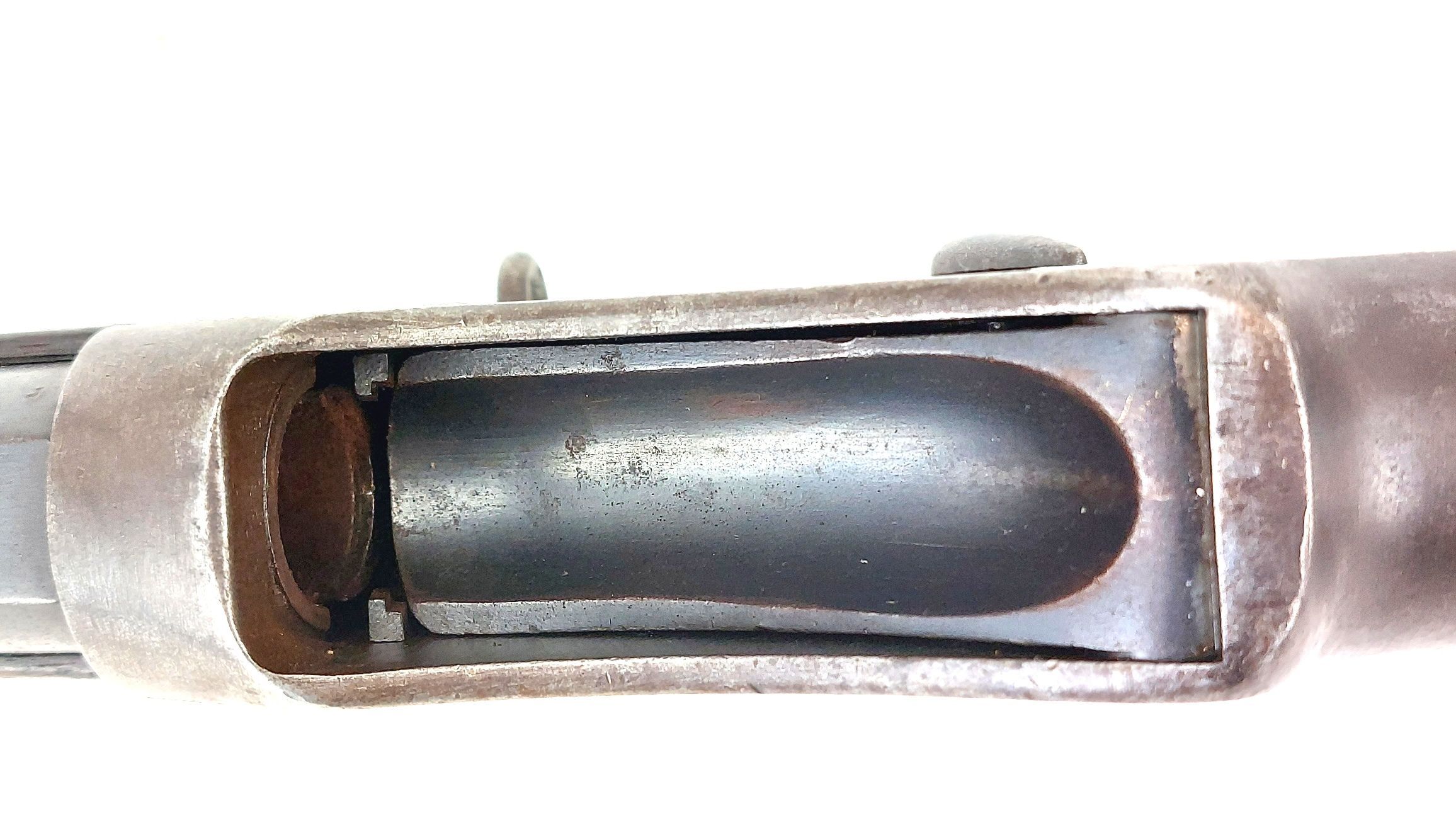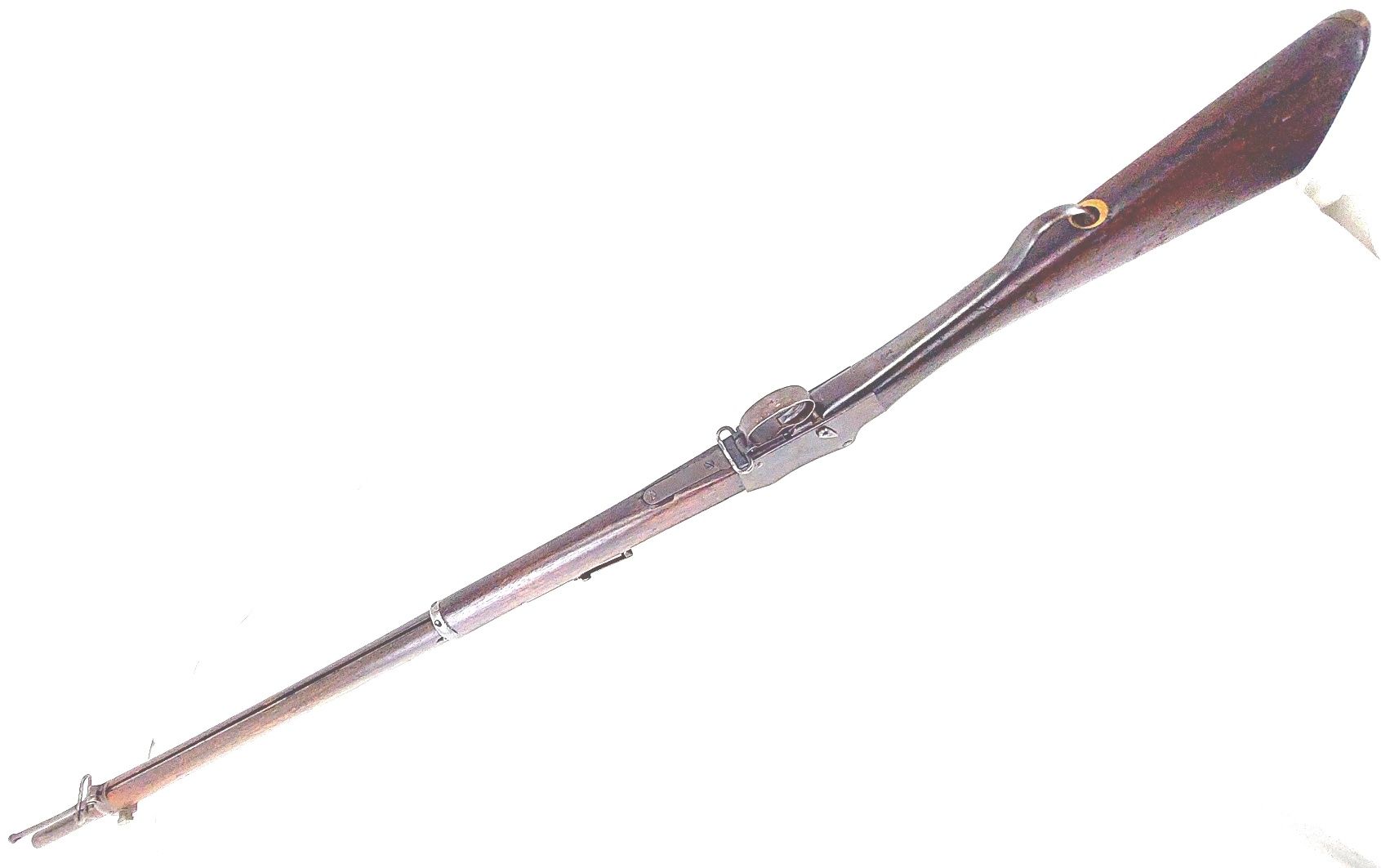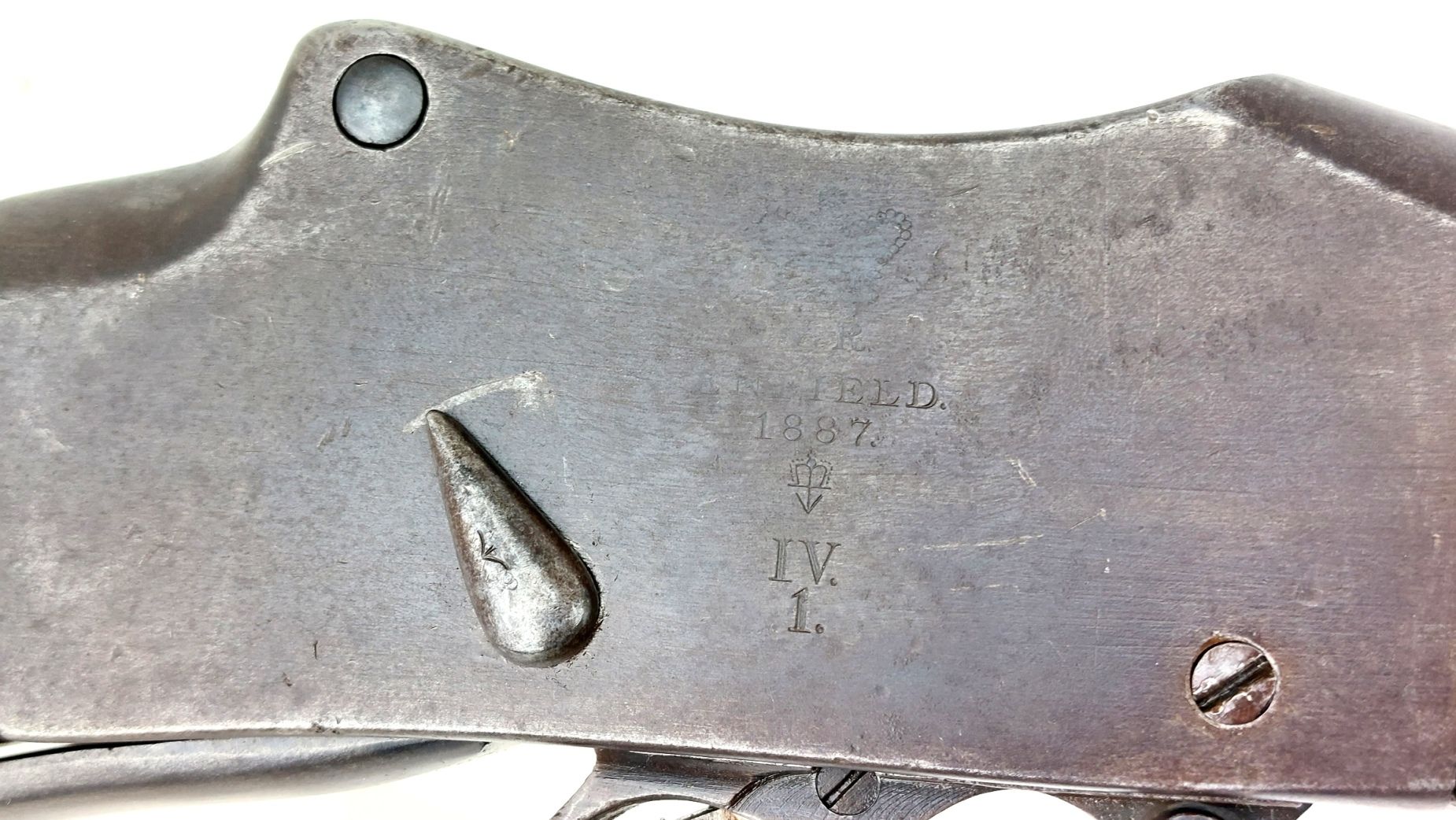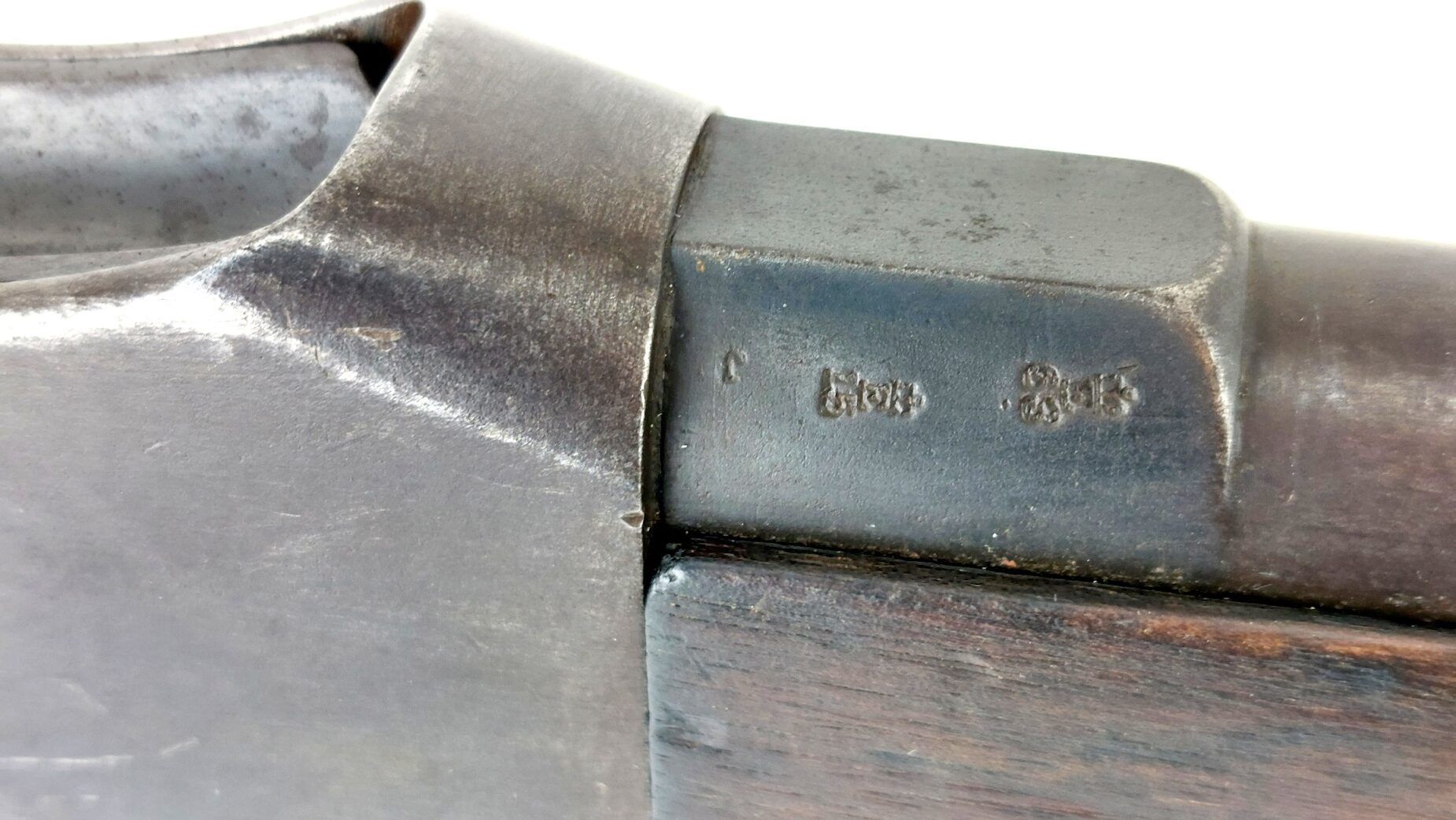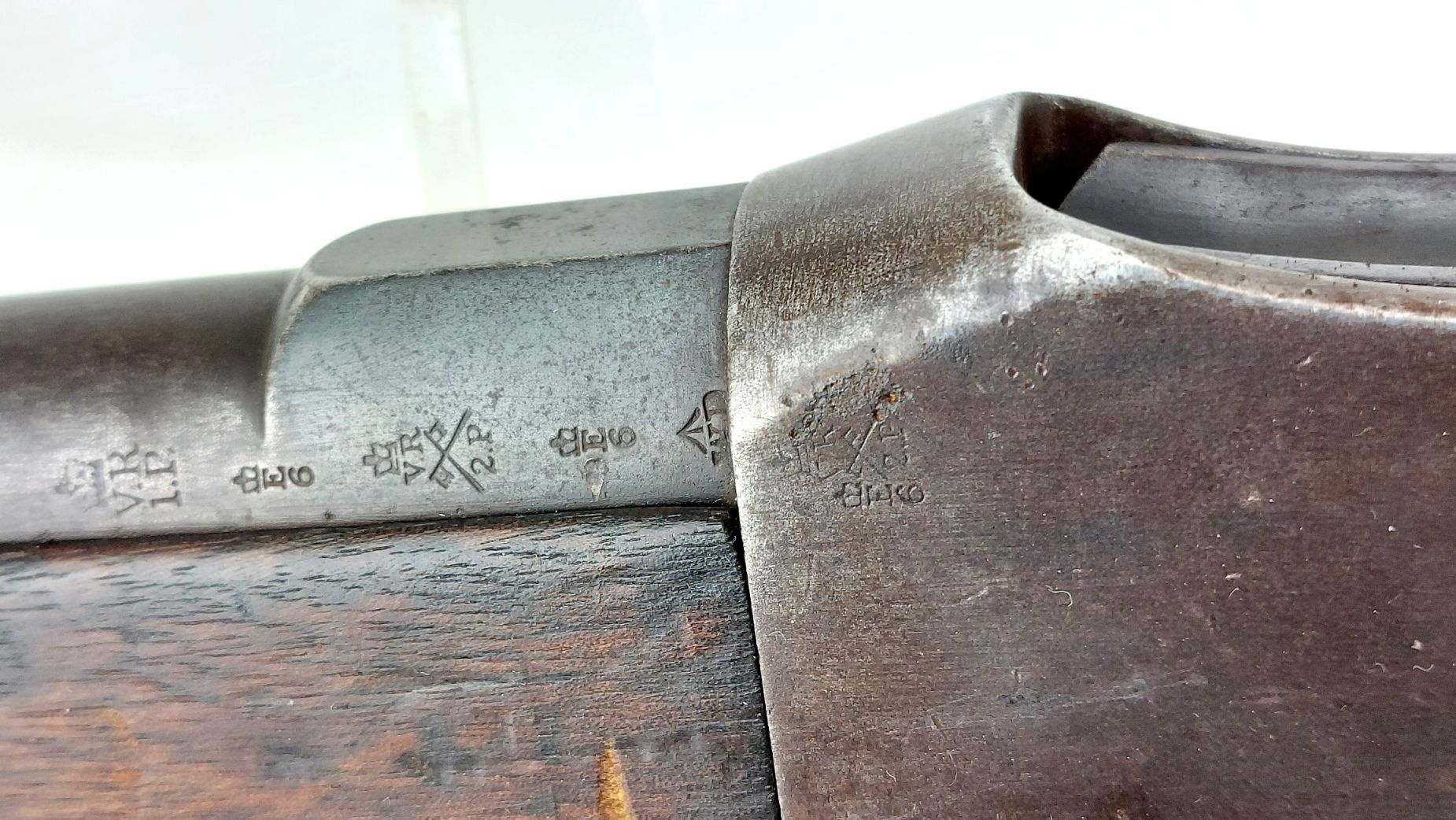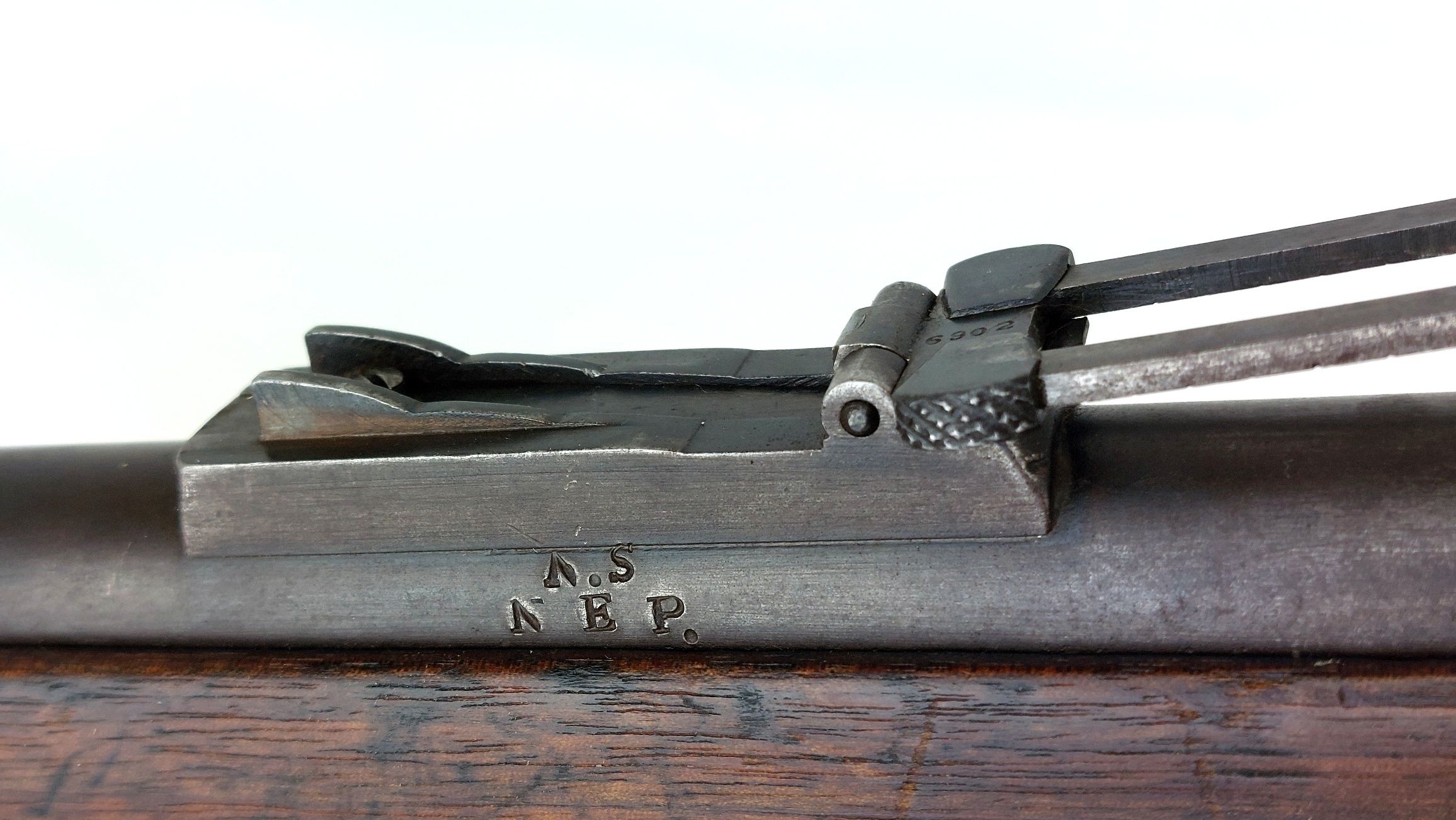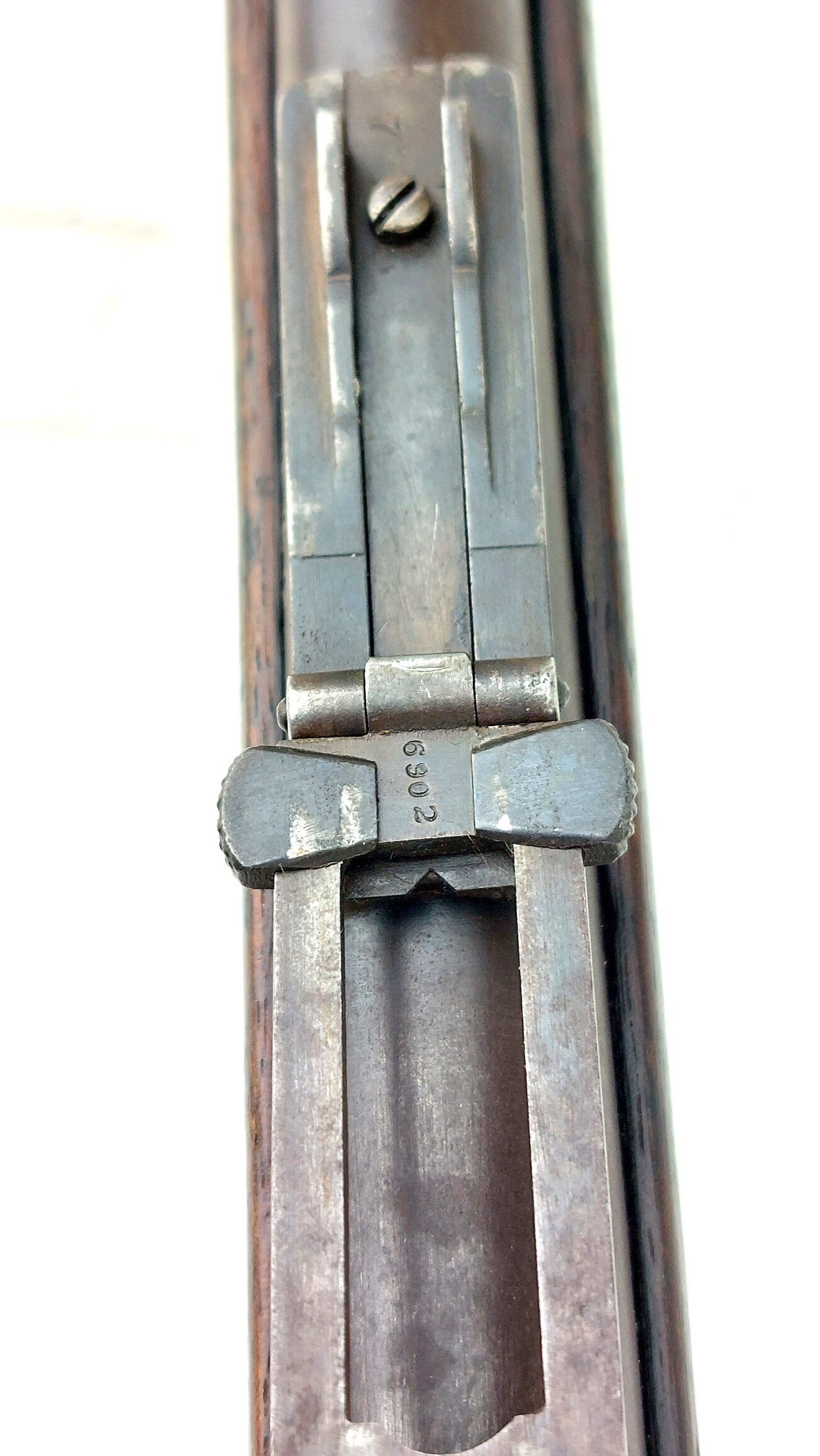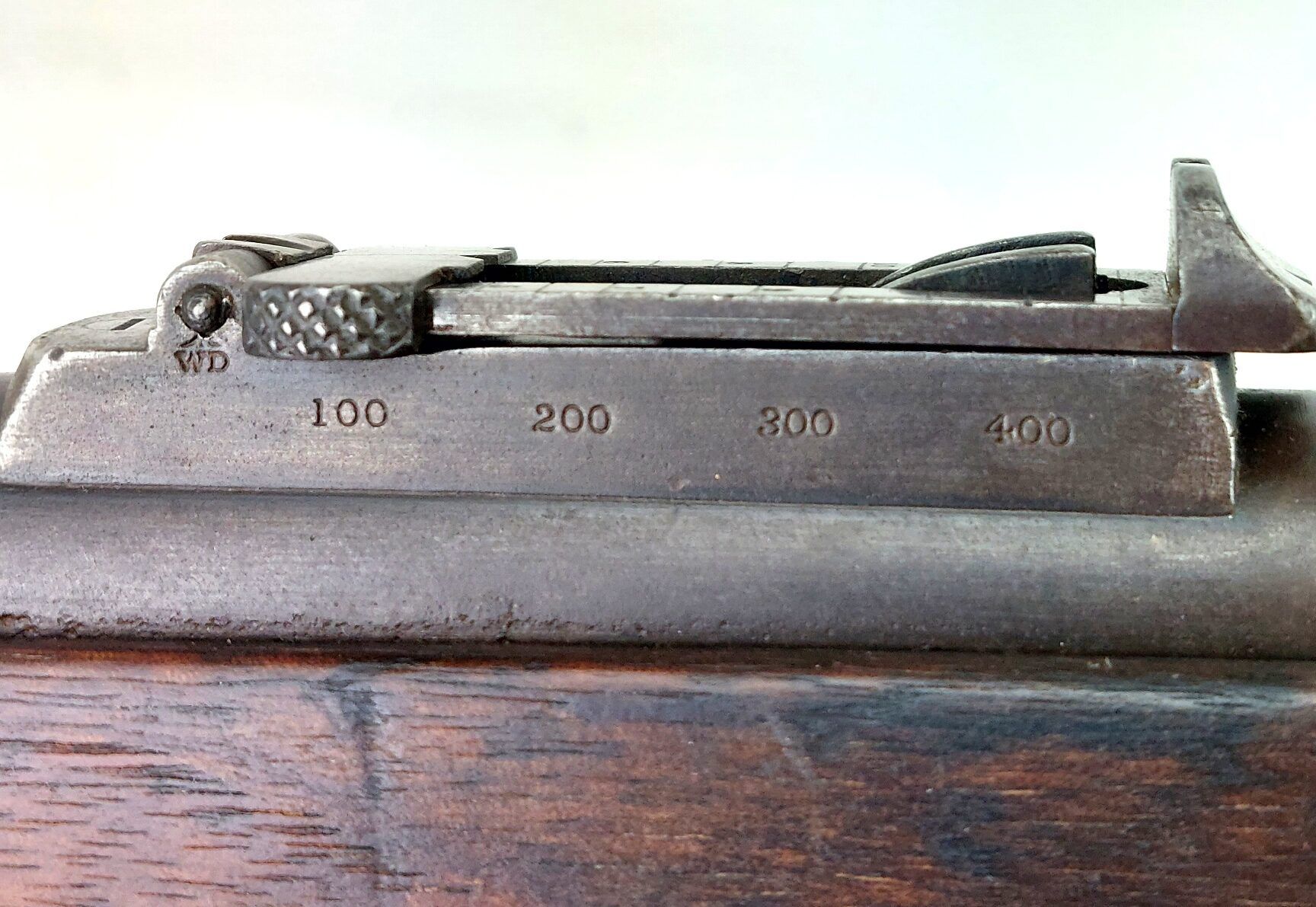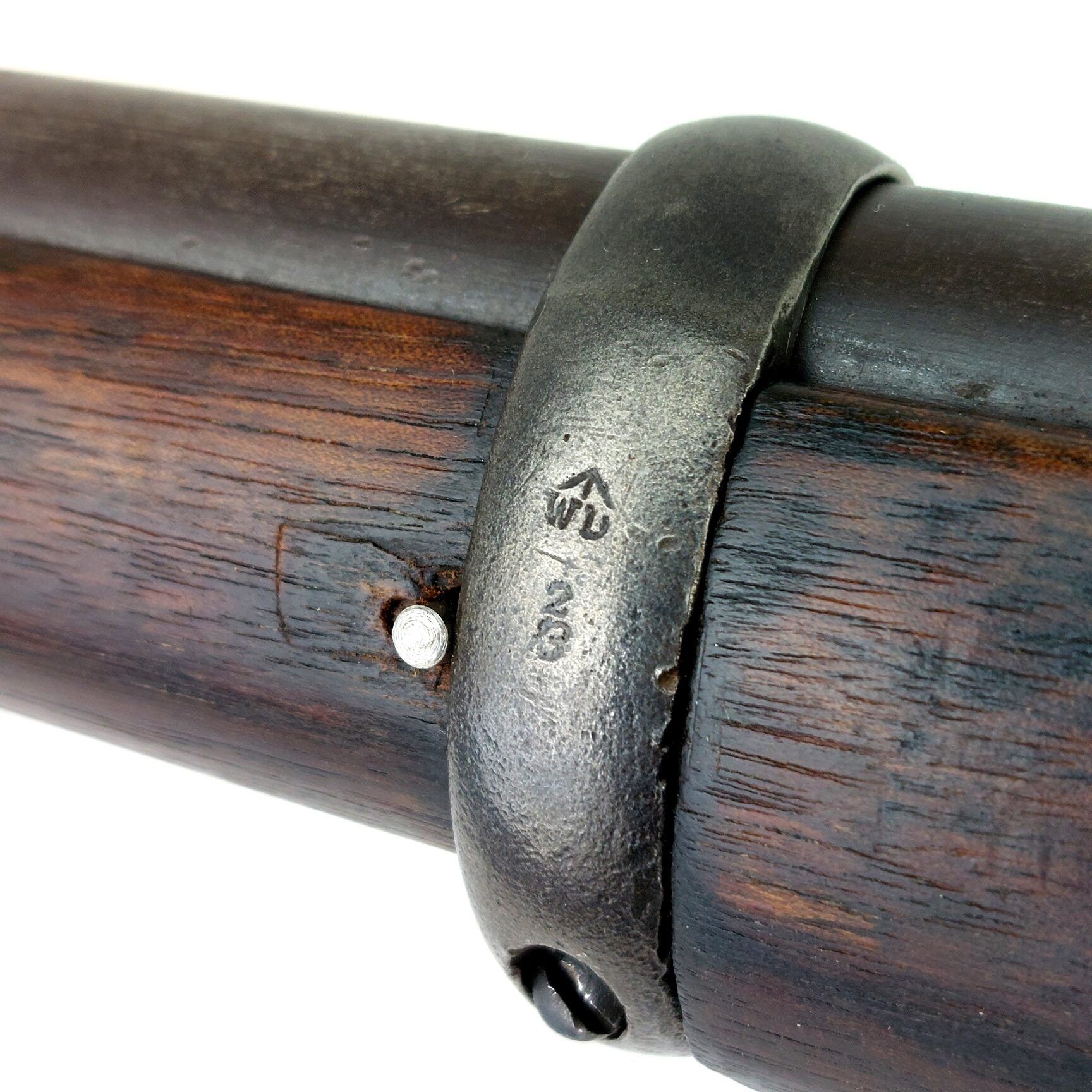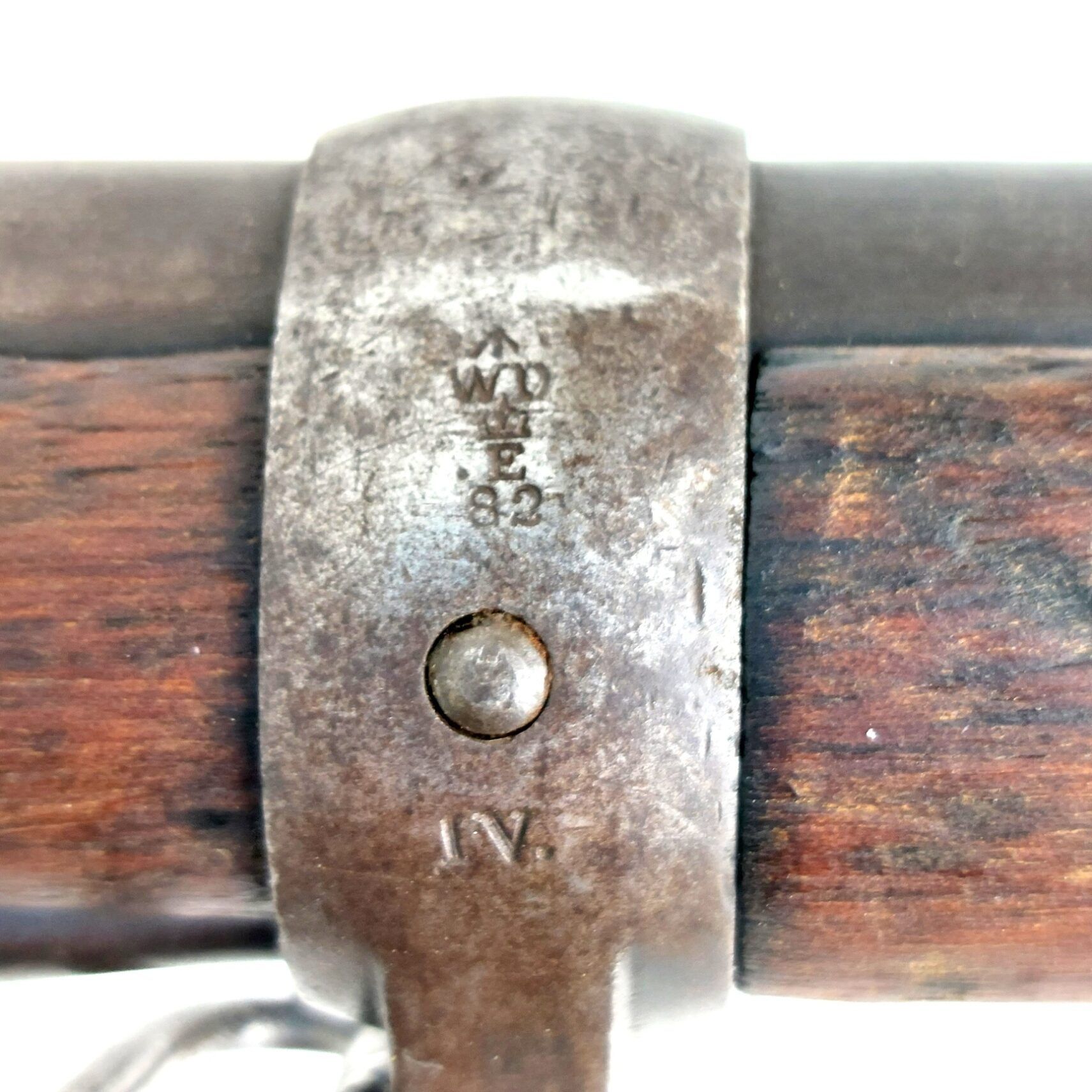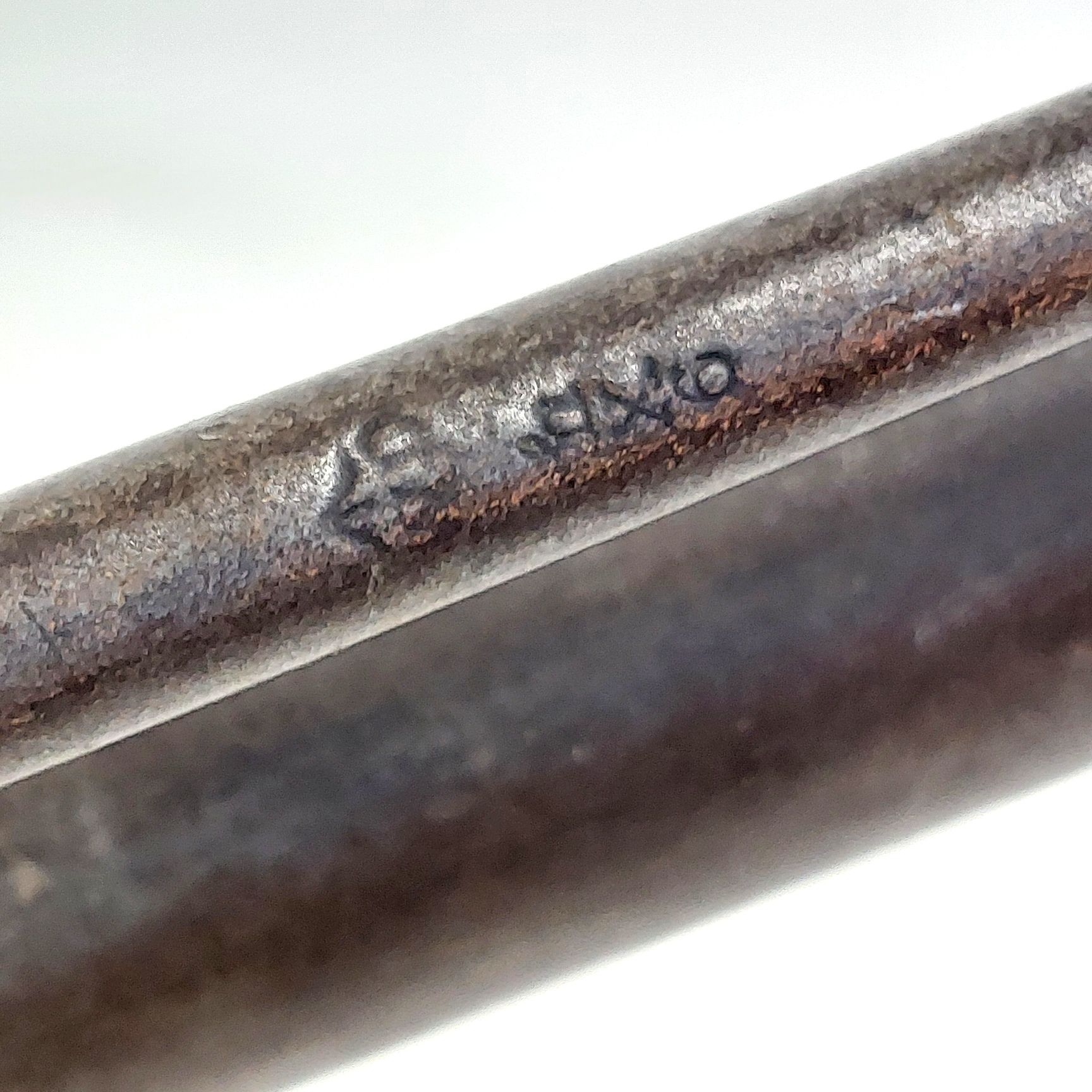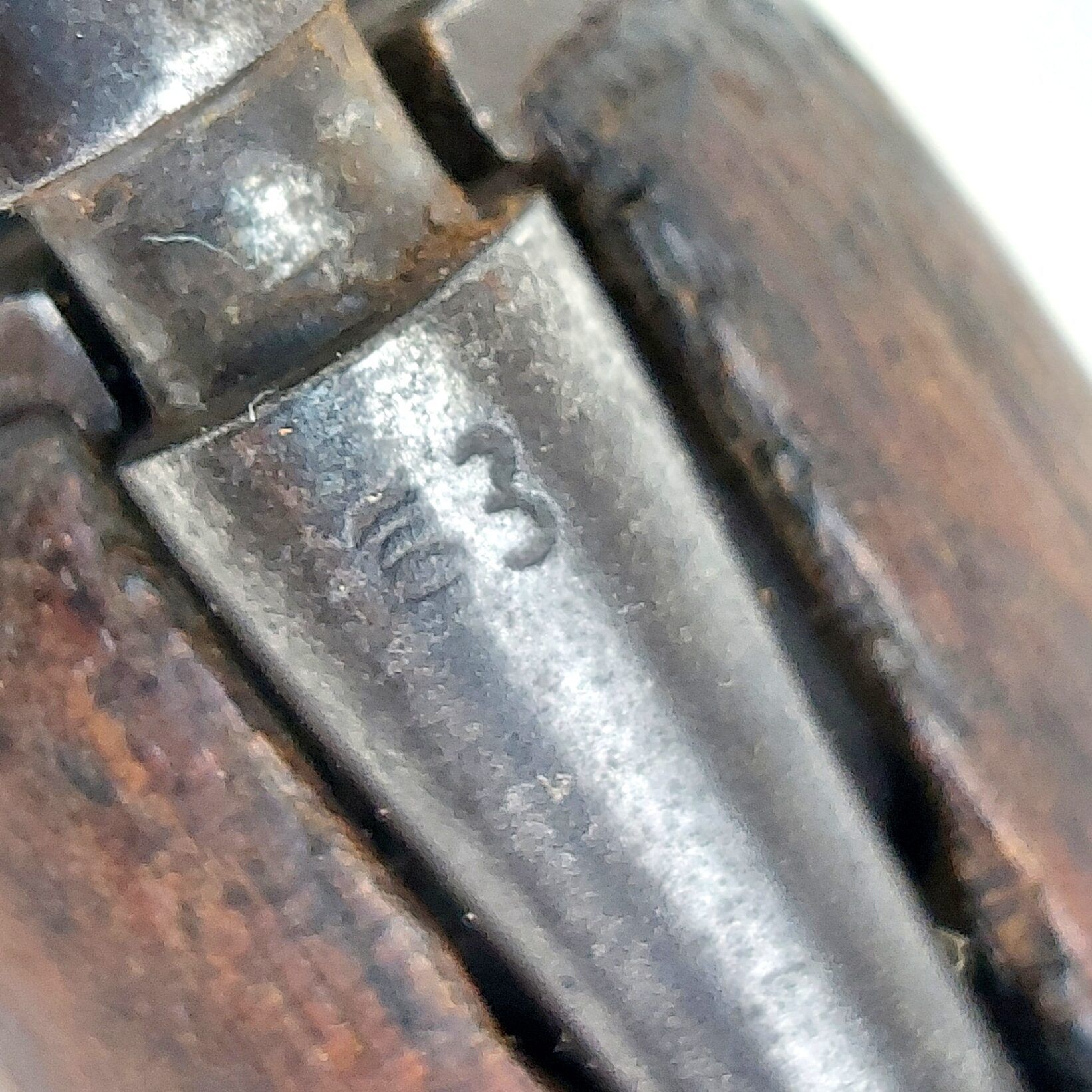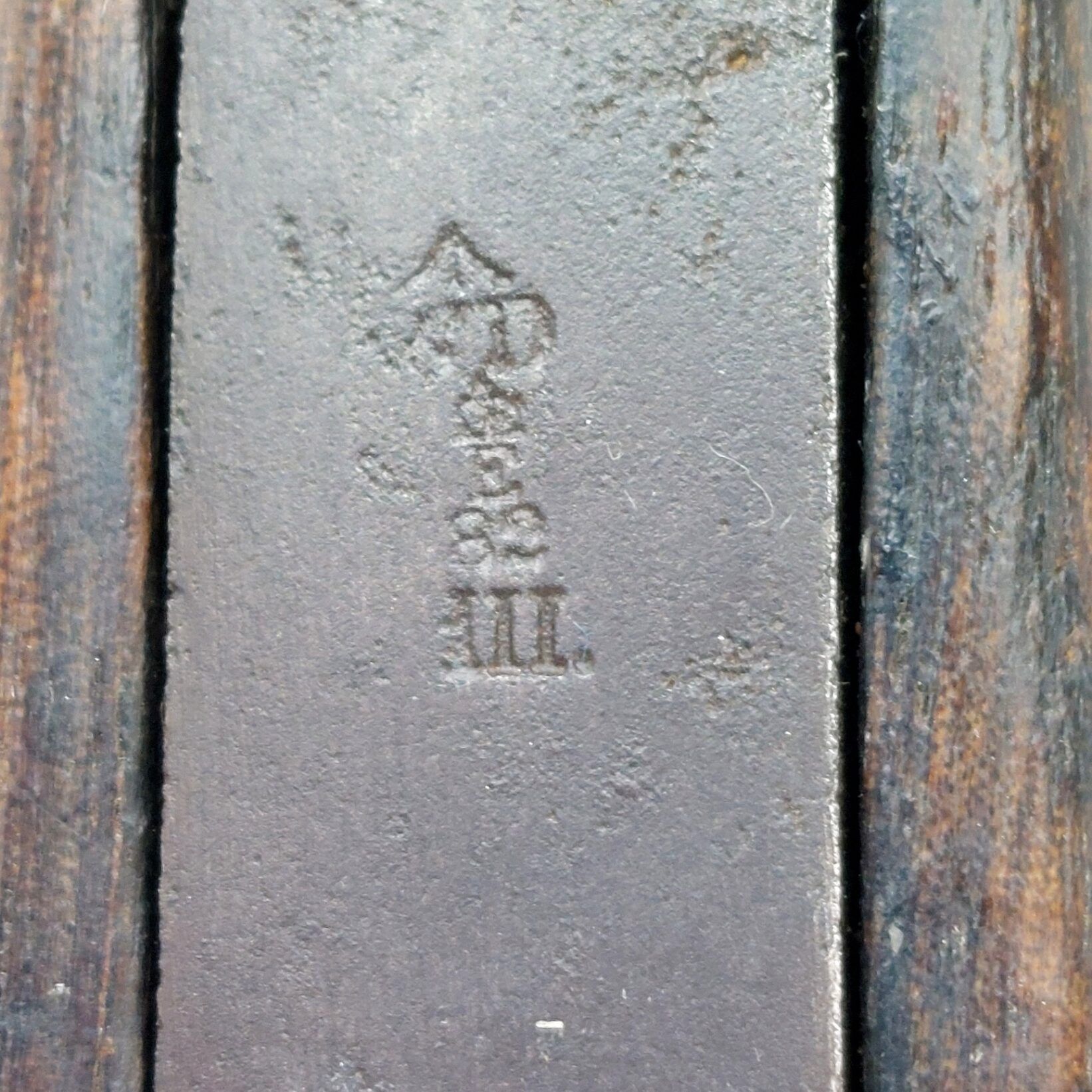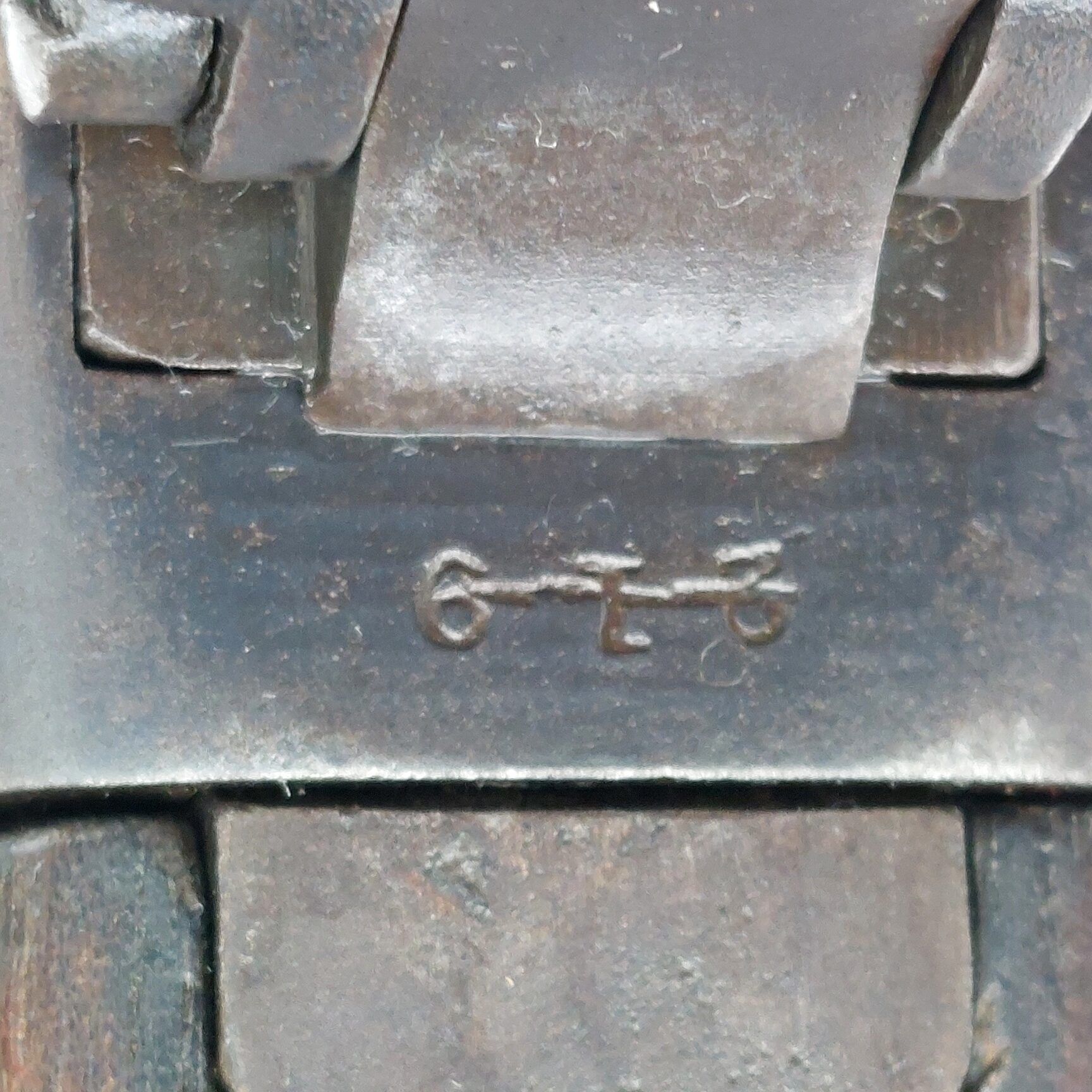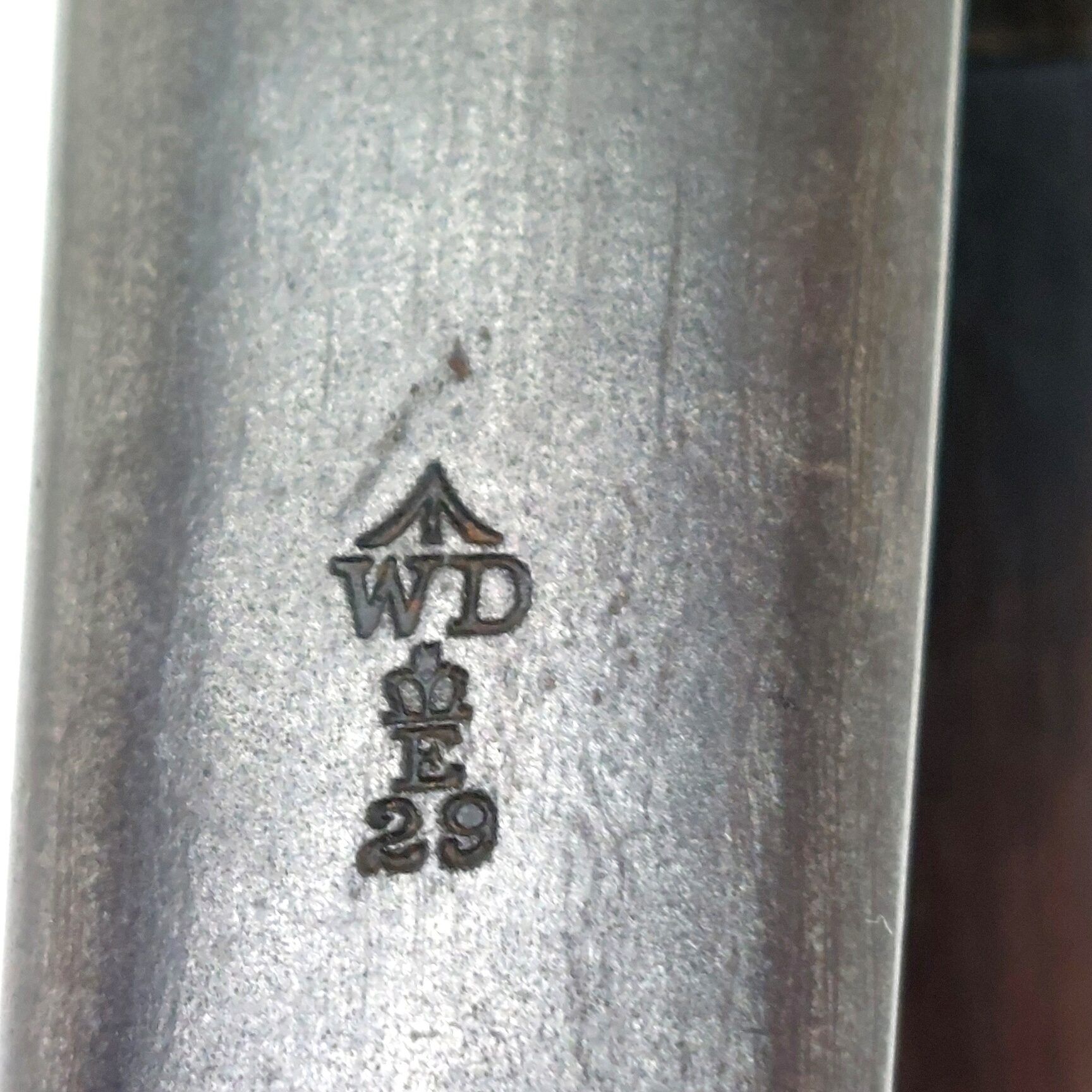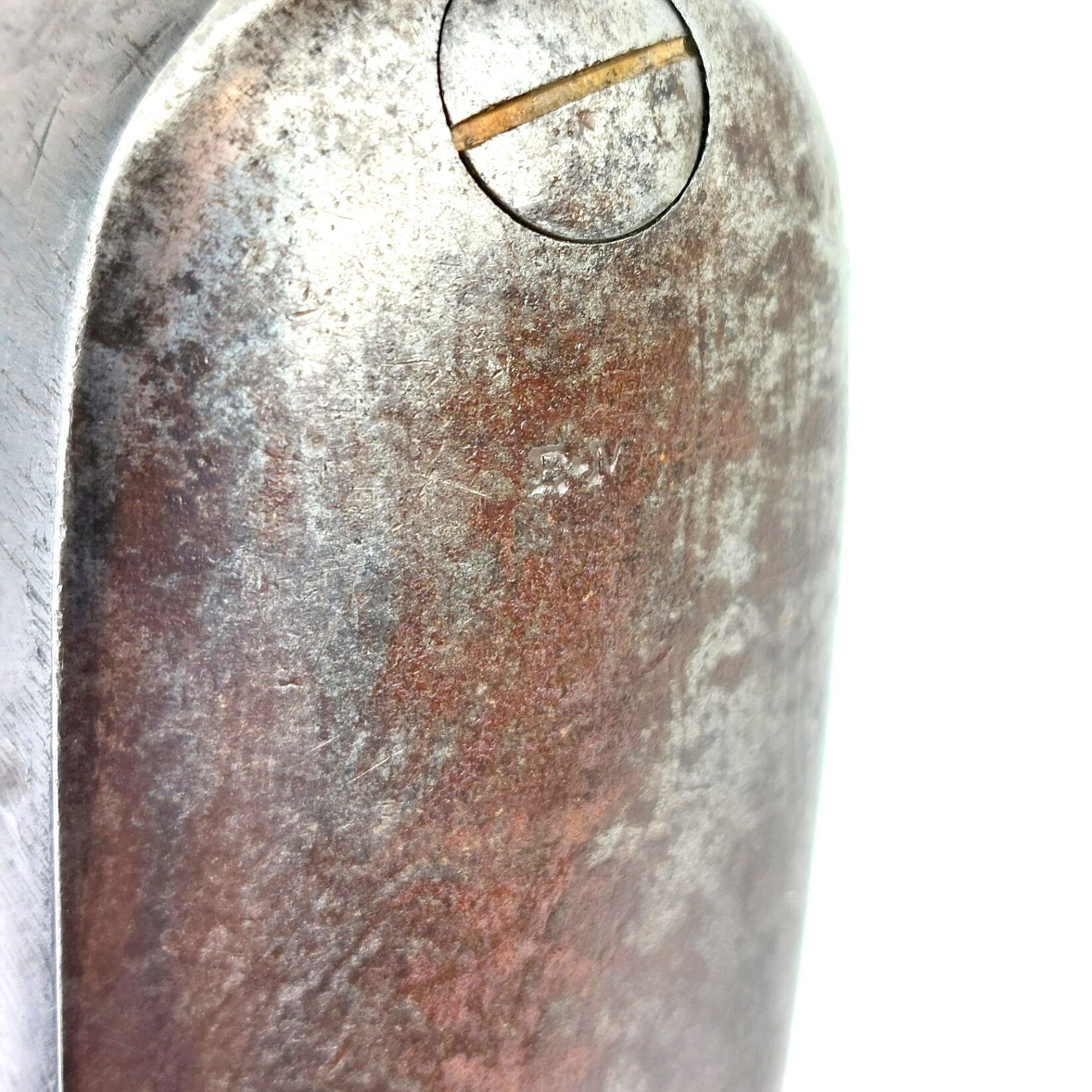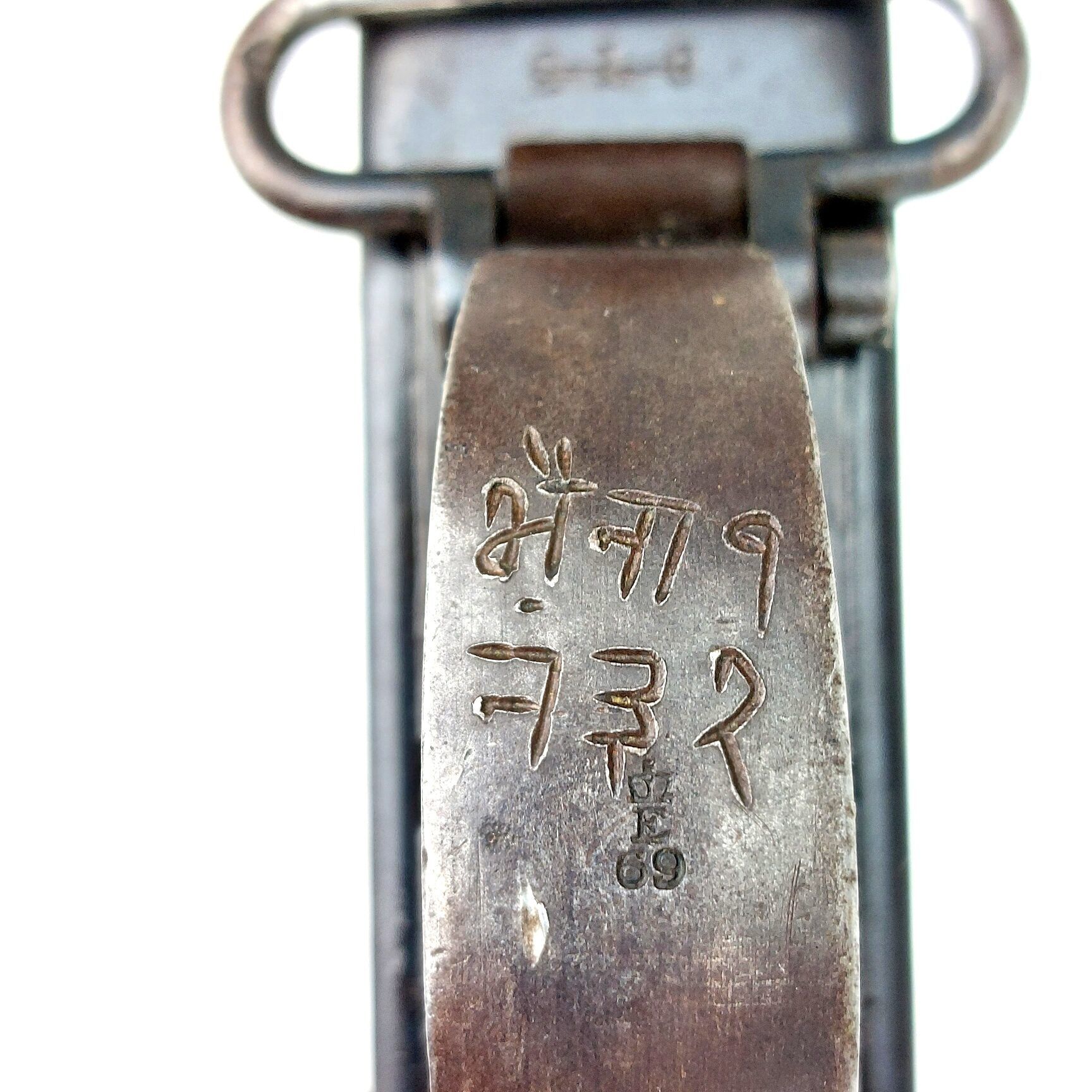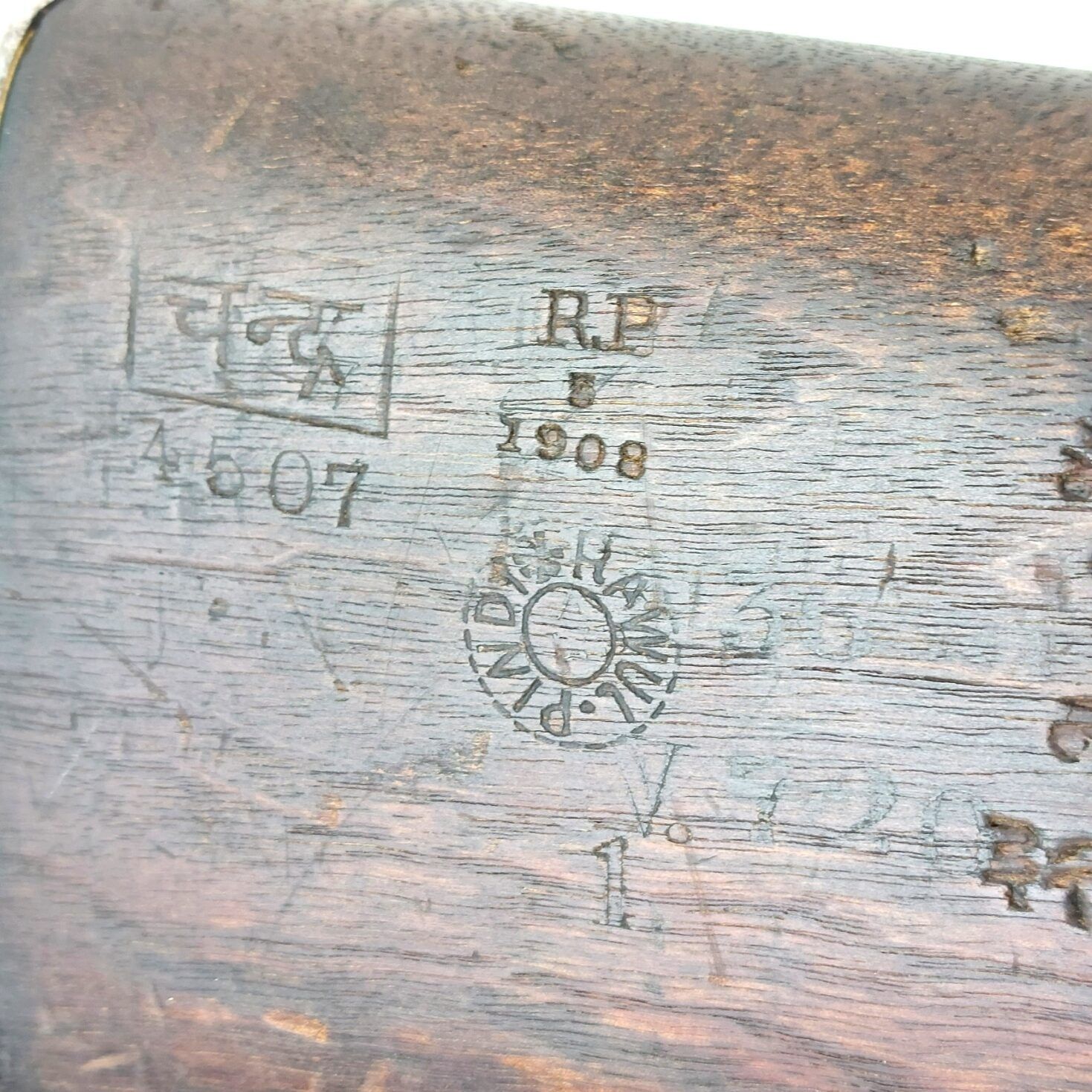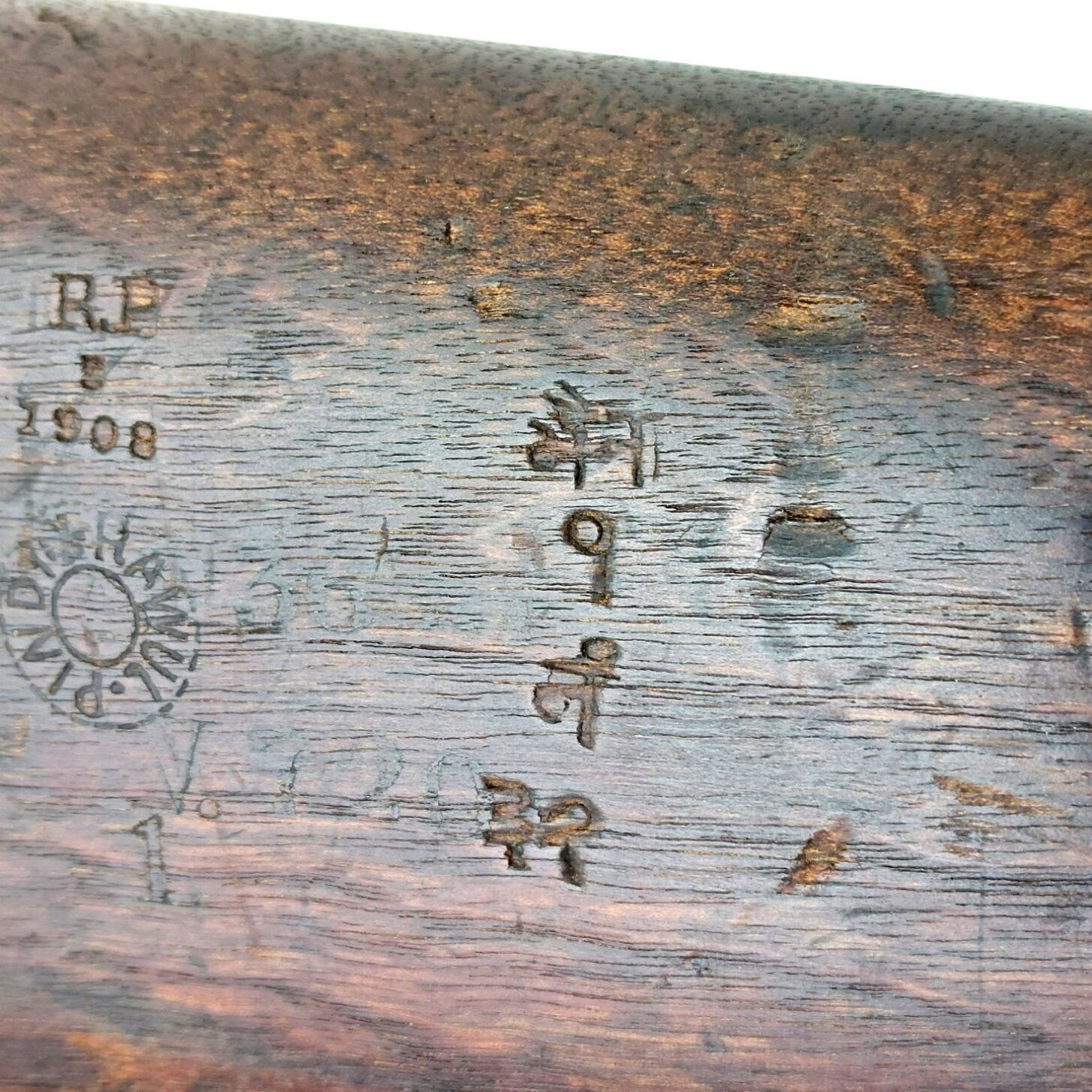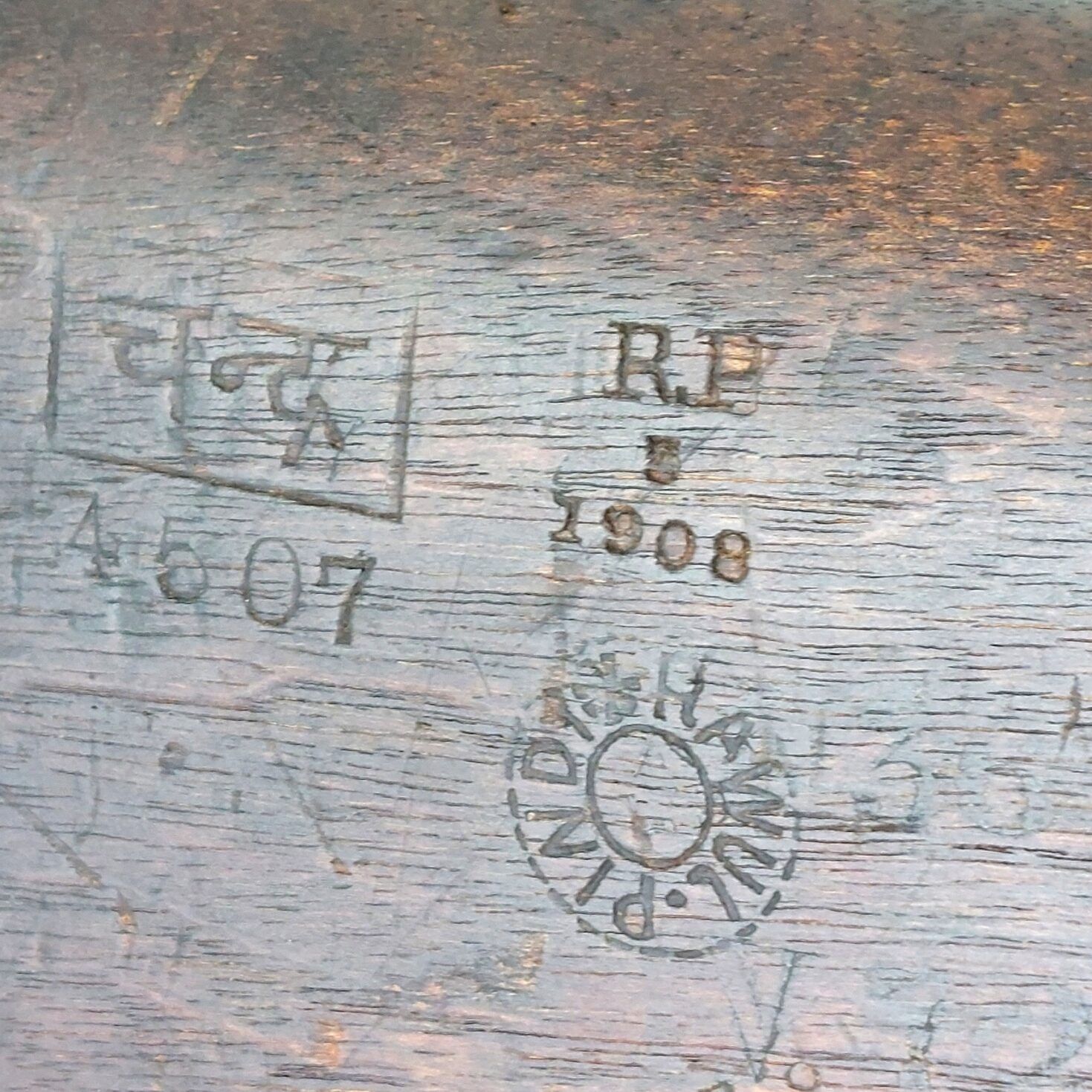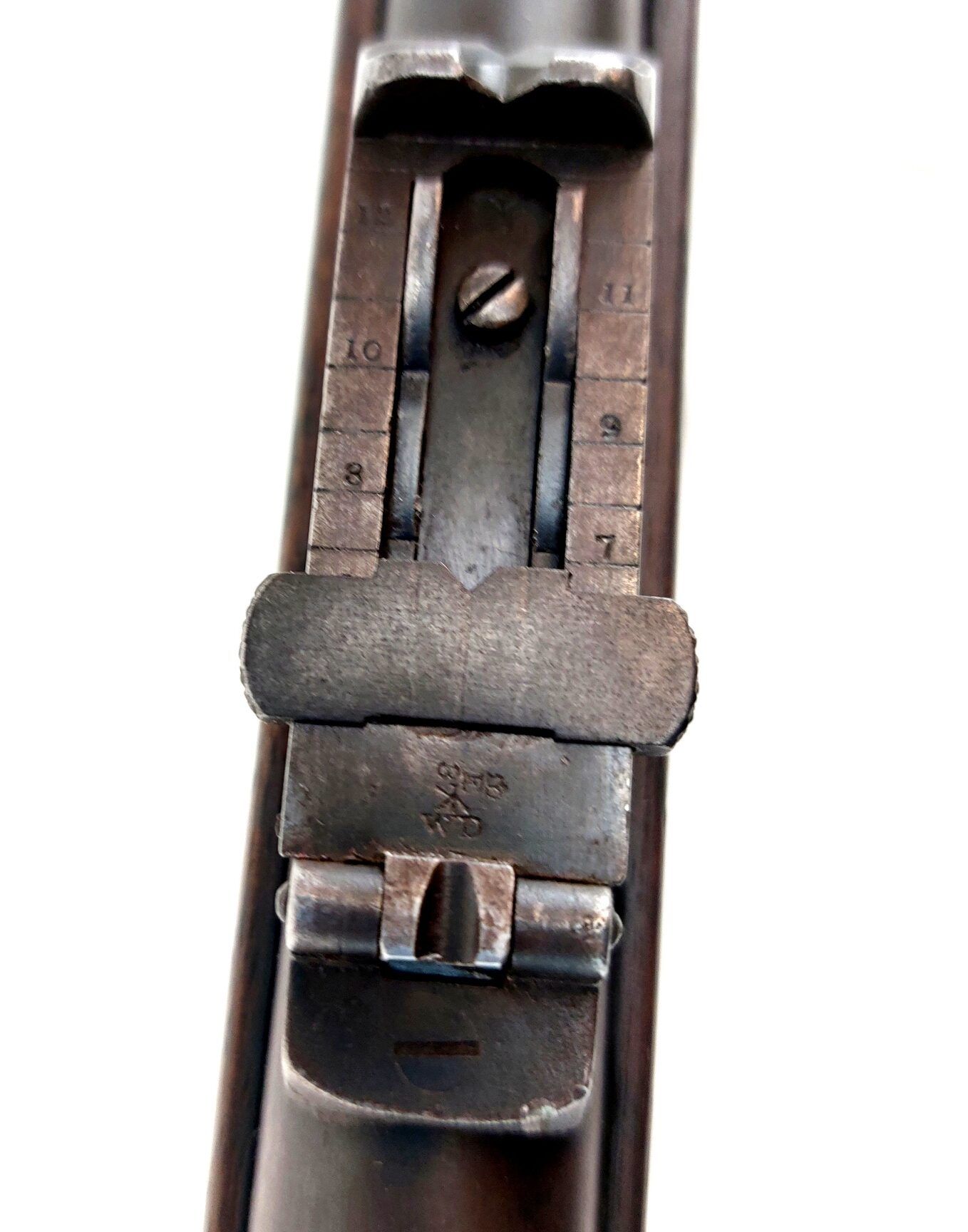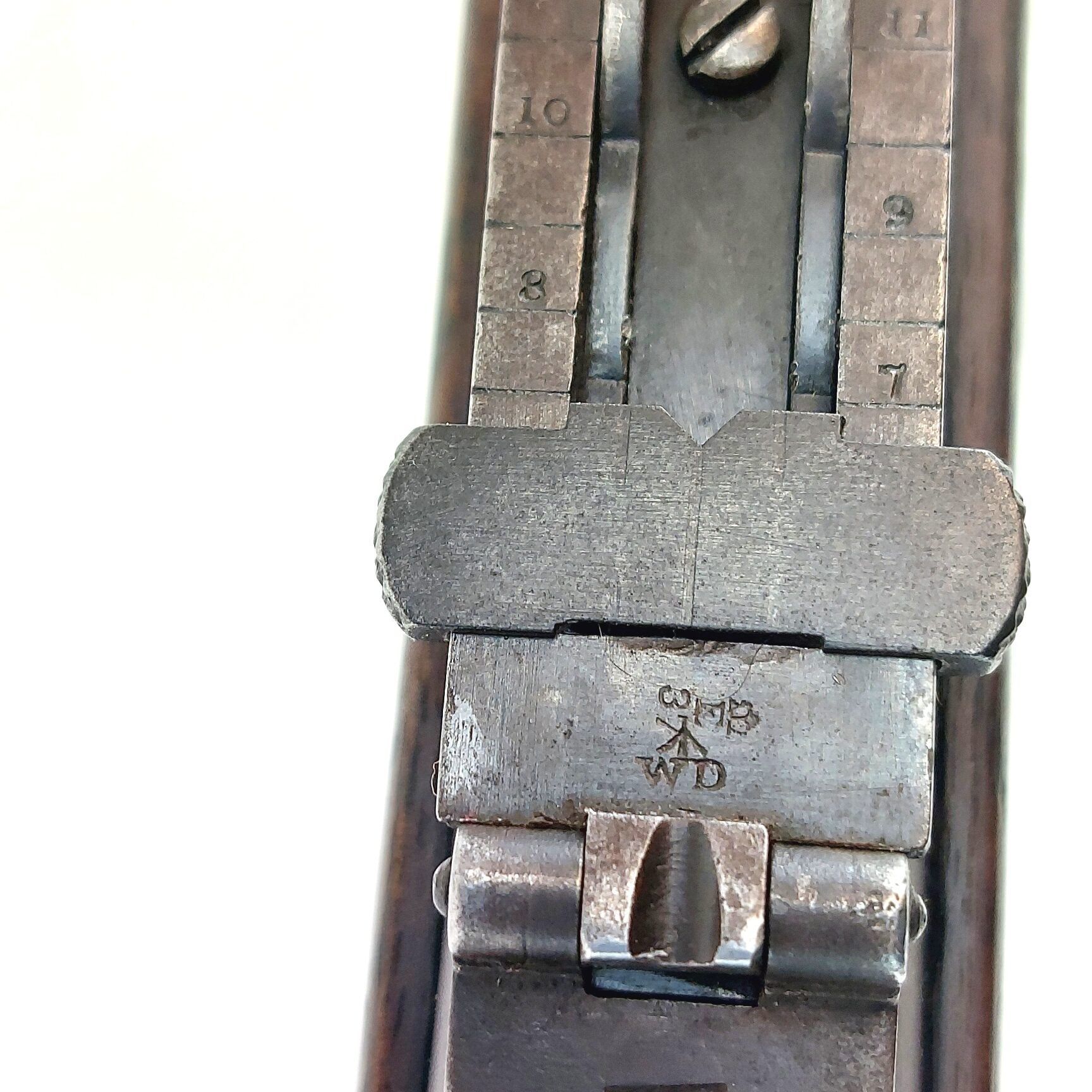*British, 1887, Victorian Mark IV. 1. WD Enfield Martini Henry Long Lever Service Rifle, with post British Service Rawulpindi Arsenal, Nepalese “Native State” Issue Marks 1908, Obsolete Calibre*
Marked on RHS Receiver: Faint “Crown” over very faded “V.R” over “Enfield” over “1887” over “Crown” over “War Arrow” over “IV.” over “I.”
Carved on RHS Stock: the Chandra marking (Boxed image of a rifle) over stores number 4507. RP over 5 over 1908 (i.e. entered Nepalese stock May 1908) over a roundel: RAWUL.PINDI*, over 1. Next to: Devanagari Script, there is additional script on the trigger guard.
Marked on LHS of barrel below sight: “NS. NEP.” (Native State, Nepal.)
Approximate measurements: 82.3cm barrel, 125cm overall
This is an excellent, original British WD MK IV Martini-Henry 1887 Rifle. Dated 1887 and chambered in .577/450. Made by Royal Small Arms Factory, Enfield. Martini Henry, long lever service rifle (see Chapter 13 of The Martini Henry For Queen & Empire by Aspinshaw). The action is stamped on the right side Crown VR (Victoria Regina) Enfield, ‘Mark IV I’ model designation and dated ‘1887’ and has clear inspection and WD marks on all parts. The stock has the Rawulpindi Indian Arsenal roundel and is dated 5, 1908 indicating that it entered Indian stock in May 1908. It also carries the Chandra marking indicating Indian/Nepalese forces re-issue after British service. The barrel is marked below the sight Nep. NS; there is debate as to whether NS stands for Native State or Native Service. Approximately around 12000 Mark IV rifles were sent to Nepal.
The Mk IV Martini action has a longer loading lever then the earlier models. It has its original woodwork throughout. It has a flip up ladder rear sight calibrated for 100, 200, 300 and 400 yards, plain fore-sight, steel fore-end nose-cap, ram-rod, bayonet lug, steel butt plate and sling swivels. The barrel has WD inspection / proof marks. The right-hand-side of the action body, showing the falling-block fulchrum-pin top left, and the ‘tear-drop’ cocking indicator that allows the firer to check, by feel alone, whether or not the action is cocked.
Famously employed during the Zulu Wars, the Martini-Henry rifle is one of the best known British service rifles. The rifle utilised a falling block, self-cocking, lever operated, single-shot action. The first design of this type of falling-block action is credited to the American Henry Peabody, but, for British service, the improvements initially patented by Swede Freidrich von Martini in 1868 were taken up in a rifle utilising a design close to that of his 1871 Patent. The first Martini adopted for service in the British and colonial armies was the Martini Henry Mark I, which entered service in June of 1871. There were an additional three main variations of the Martini-Henry Rifle: the Mark II, III and IV. The Mark IV was produced from 1888 to 1889, but some examples like this one are seen with 1886 and 1887 dates. These weapons were converted from early Enfield-Martini Mark I’s. The simple and robust breach loading mechanism was ideal for infantry use.
Numerous Enfield Inspection Marks throughout:
Marked on RHS Barrel: – Crown over E over 63, Crown over E over 15, J
Marked on LHS Barrel: Crown over V.R. over Crossed Flags over 1.P., Crown over E over 6, Crown over V.R. over Crossed Flags over 2.P. (rifle barrel passed the second proofing after assembly), Crown over E over 6, War Arrow over WD,
Marked on corner of LHS receiver: Crown over V.R. over Crossed Flags over 2.P., Crown over E over 6
Marked on top of sight; Crown over E over 37 over War Arrow over WD, inside sight – 6902, Marked on RHS of sight – WD, increments 100-400.
Marked on cocking Lever: War Arrow over WD over Crown over E over 29
Marked on trigger guard: Crown over E over 69
Marked on trigger: War Arrow
Marked between trigger guard and plate: 219 crossed out.
Marked on plate: War Arrow over WD over Crown over E over 82 over III.
Marked on butt plate: E.M
Marked on 1st barrel band: War arrow over WD over 2 over B
Marked on the bayonet band: War arrow WD over Crown over 82, over IV
Marked on ramrod: War arrow WD over Crown over X over 6
Note: The WD war department mark was only used from 1856 to 1895.
*Condition*
This rifle cocks and dry fires and is in excellent condition. It has its original woodwork throughout. The wood has just the knocks, bumps and bruises consistent with age and service use. The metal work has even patina. The action works crisply. Complete with original cleaning rod. This lovely rifle is chambered in an obsolete calibre and can therefore be owned live without any form of license. Please see photographs as part of the condition report.
RQMAAOOXAFOO_7836185336


